Table of Contents
We are all seeking wisdom throughout philosophy. This is the tie that binds the community together. We all seek to use different avenues of philosophy to arrive at wisdom and thus transform ourselves and the world around us.
Philosophy is often denigrated as something up in the clouds, with no practical application to the world around us. However, we believe that philosophy is something that helps us to make sense of both ourselves and the world in which we live. It is the only candle that we have to light the darkness.
One of the most important questions in philosophy is what actually constitutes true wisdom. What’s more, philosophy is deeply concerned with how one attains wisdom. Neither of these questions have obvious answers and have been wrestled over by some of the greatest minds in human history.
We urge you to wrestle with these questions yourself. For we believe that wisdom isn’t something that one receives from outside, but rather something that one arrives at through the process of carefully considering difficult questions. It is in this spirit that we present the following quotes on the subjects of philosophy and wisdom. It is our wish that these will spark the kinds of thoughtful reflections that will have you arriving at your own place of wisdom.
Quotes About Wisdom
Thomas Paine
“The mind once enlightened cannot again become dark.”
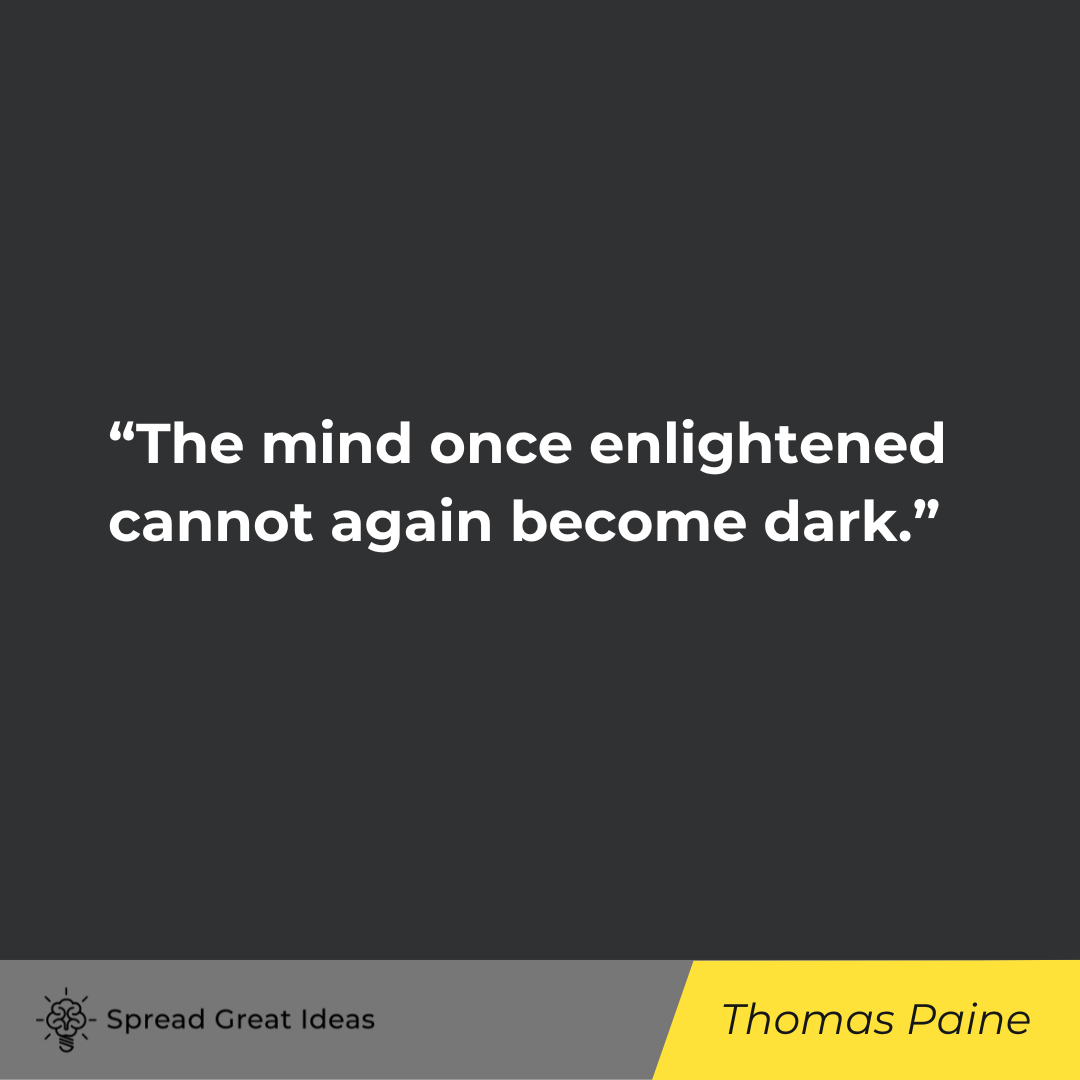
Thomas Paine’s quote encapsulates the enduring impact of knowledge and enlightenment on the human mind. It suggests that once a person has gained understanding and insight into a particular subject or concept, they cannot revert to a state of ignorance or darkness regarding that matter. This perspective underscores the transformative power of education and enlightenment, highlighting their capacity to permanently expand one’s understanding and perception of the world.
Socrates
“Wonder is the beginning of wisdom.”
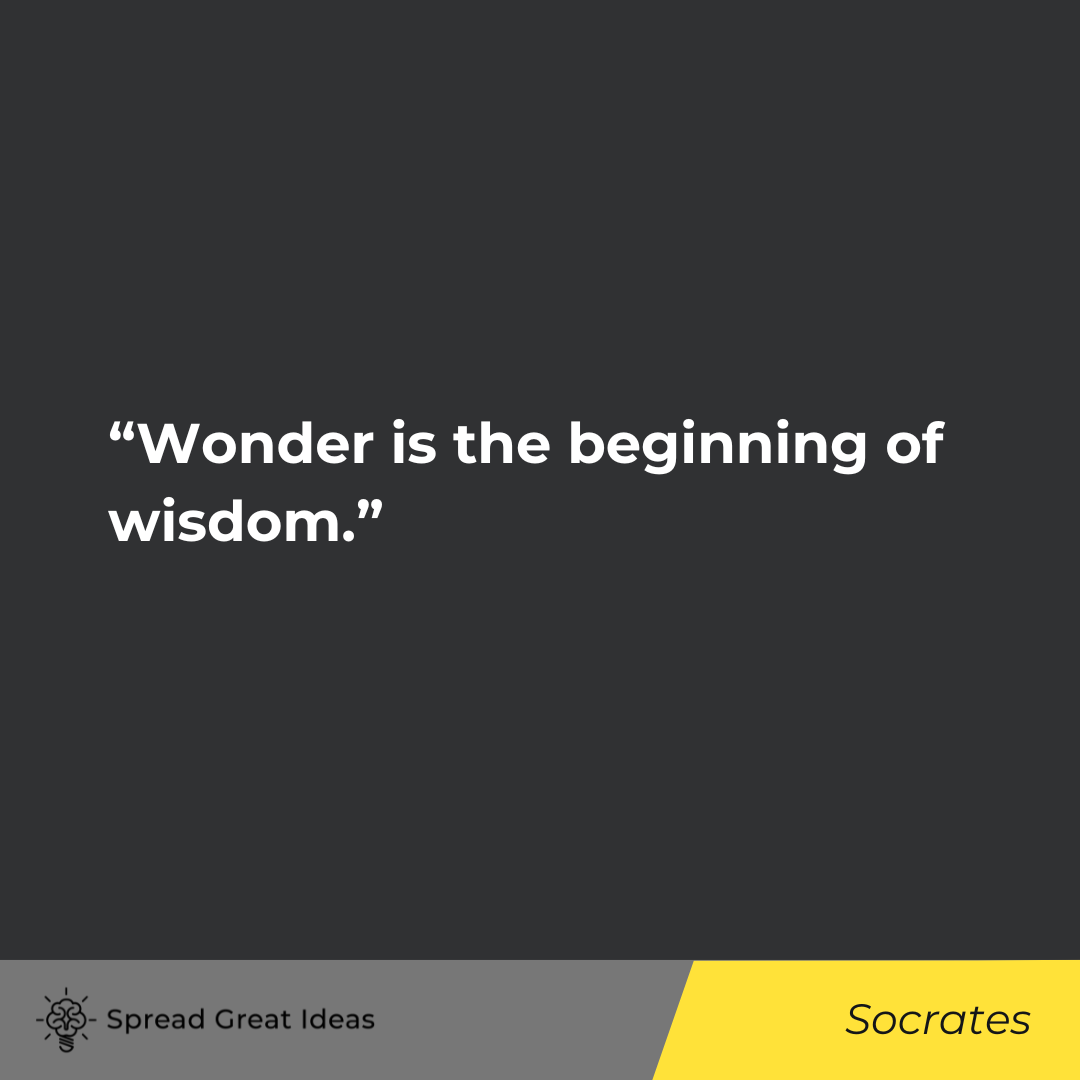
Socrates’ quote succinctly captures the essence of intellectual curiosity and its role in the pursuit of wisdom. It suggests that wonder, or a sense of awe and curiosity about the world, is the foundational step towards acquiring wisdom. This perspective emphasizes the importance of questioning, exploring, and marveling at the mysteries of life as a precursor to deepening one’s understanding and insight.
Socrates
“The only true wisdom is in knowing you know nothing.”
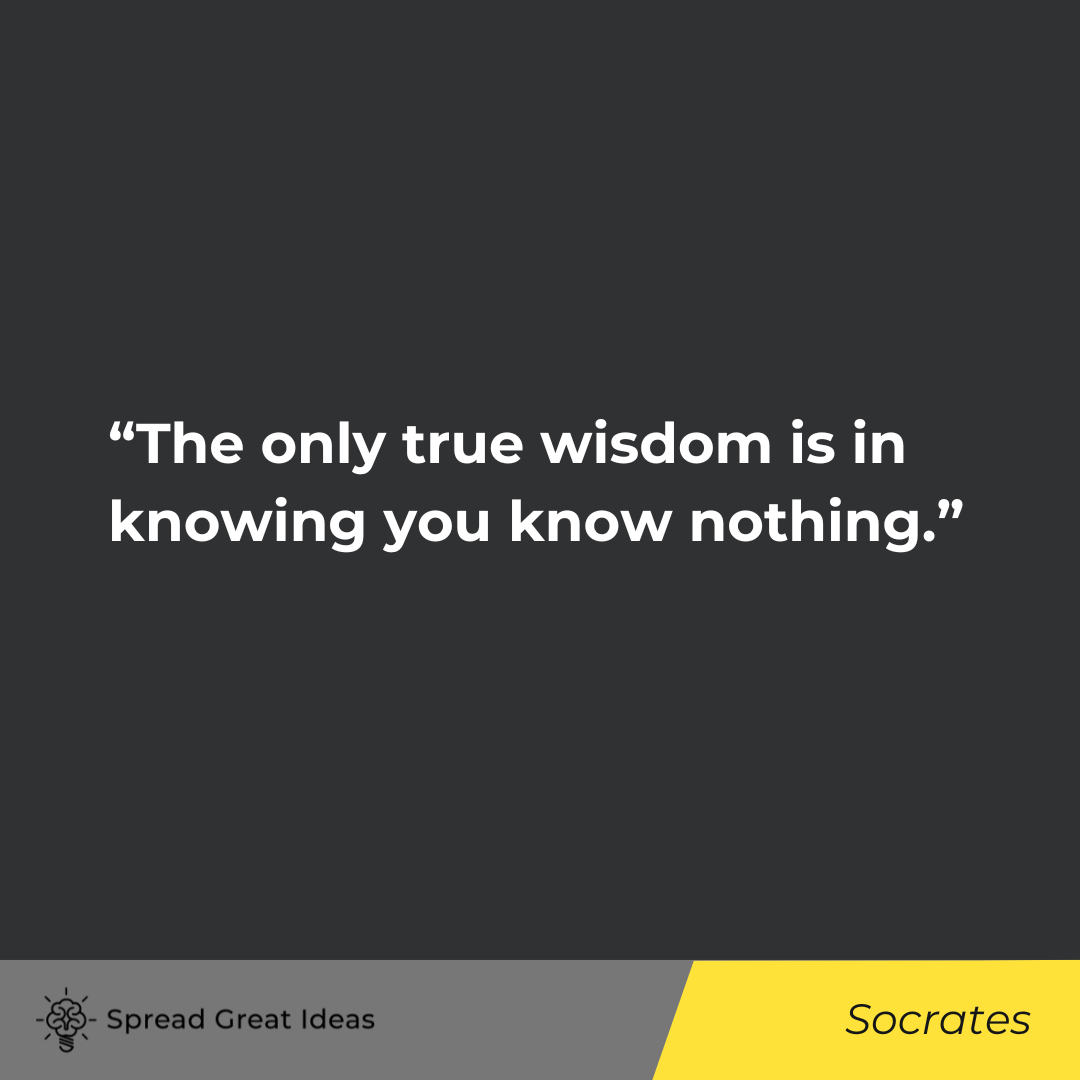
Socrates’ quote encapsulates the essence of humility and open-mindedness in the pursuit of wisdom. It suggests that genuine wisdom begins with the recognition of one’s own limitations and the acknowledgment of the vastness of knowledge yet to be discovered. This perspective emphasizes the importance of intellectual humility, encouraging individuals to approach learning with a sense of curiosity and willingness to continuously expand their understanding.
Chinese proverb
“The beginning of wisdom is to call things by their true names.”
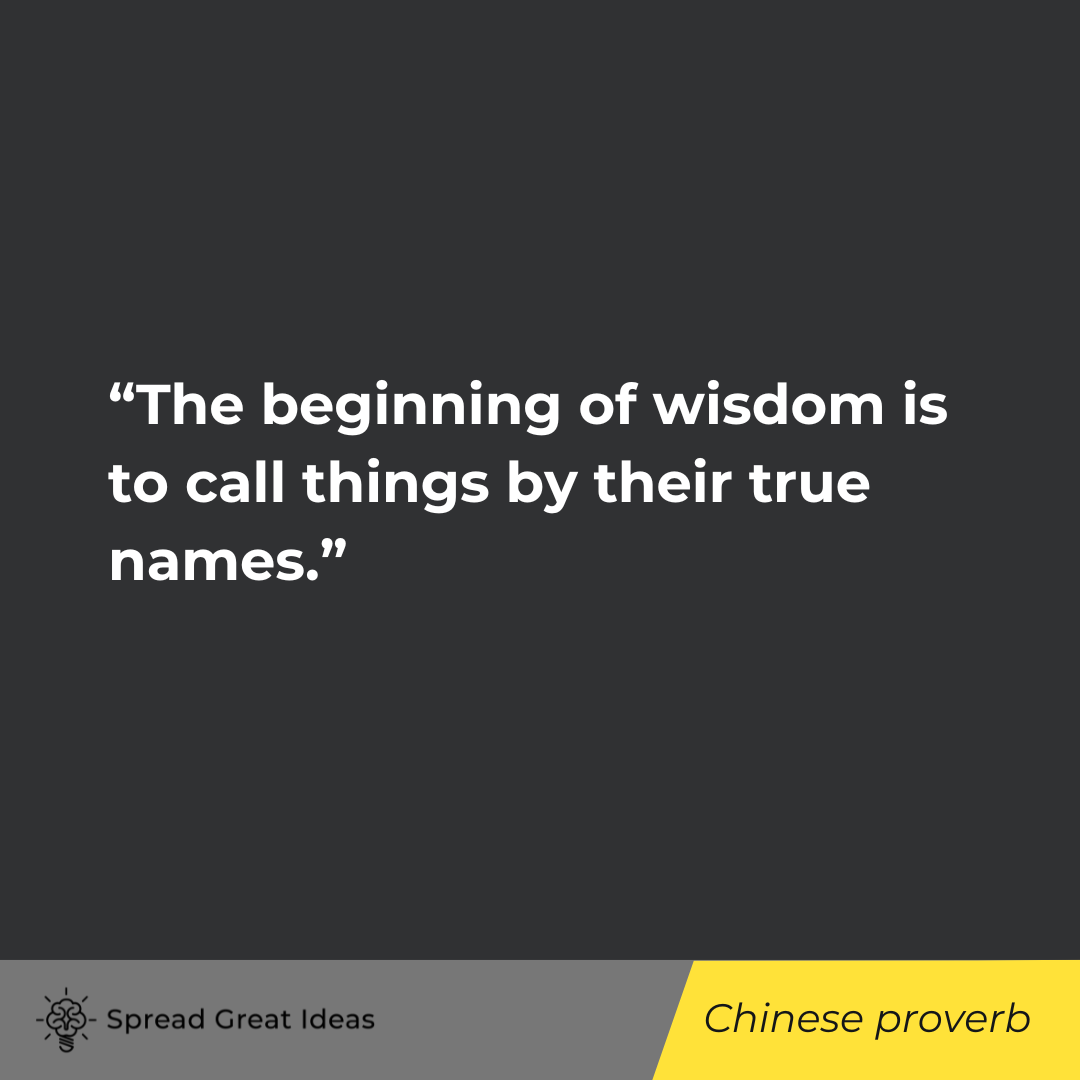
This Chinese proverb highlights the importance of clarity and honesty in gaining wisdom. It suggests that understanding and truth begin with accurately identifying and acknowledging reality. This perspective underscores the significance of naming things truthfully and seeing them as they truly are, rather than through distorted or deceptive lenses. By embracing honesty and clarity in perception, individuals lay the foundation for deeper insight and understanding.
Chinese proverb
“A wise man gets more from his enemies than a fool does from his friends.”
– Chinese proverb

This Chinese proverb underscores the value of adversity and challenges in fostering wisdom. It suggests that wise individuals can glean valuable insights and lessons from their adversaries, whereas fools may fail to learn from the support and guidance of their friends. This perspective highlights the transformative power of adversity in shaping one’s understanding and character, emphasizing the importance of resilience and discernment in navigating life’s obstacles.
Proverbs 11:29
“He that troubleth his own house shall inherit the wind: and the fool shall be servant to the wise of heart.”
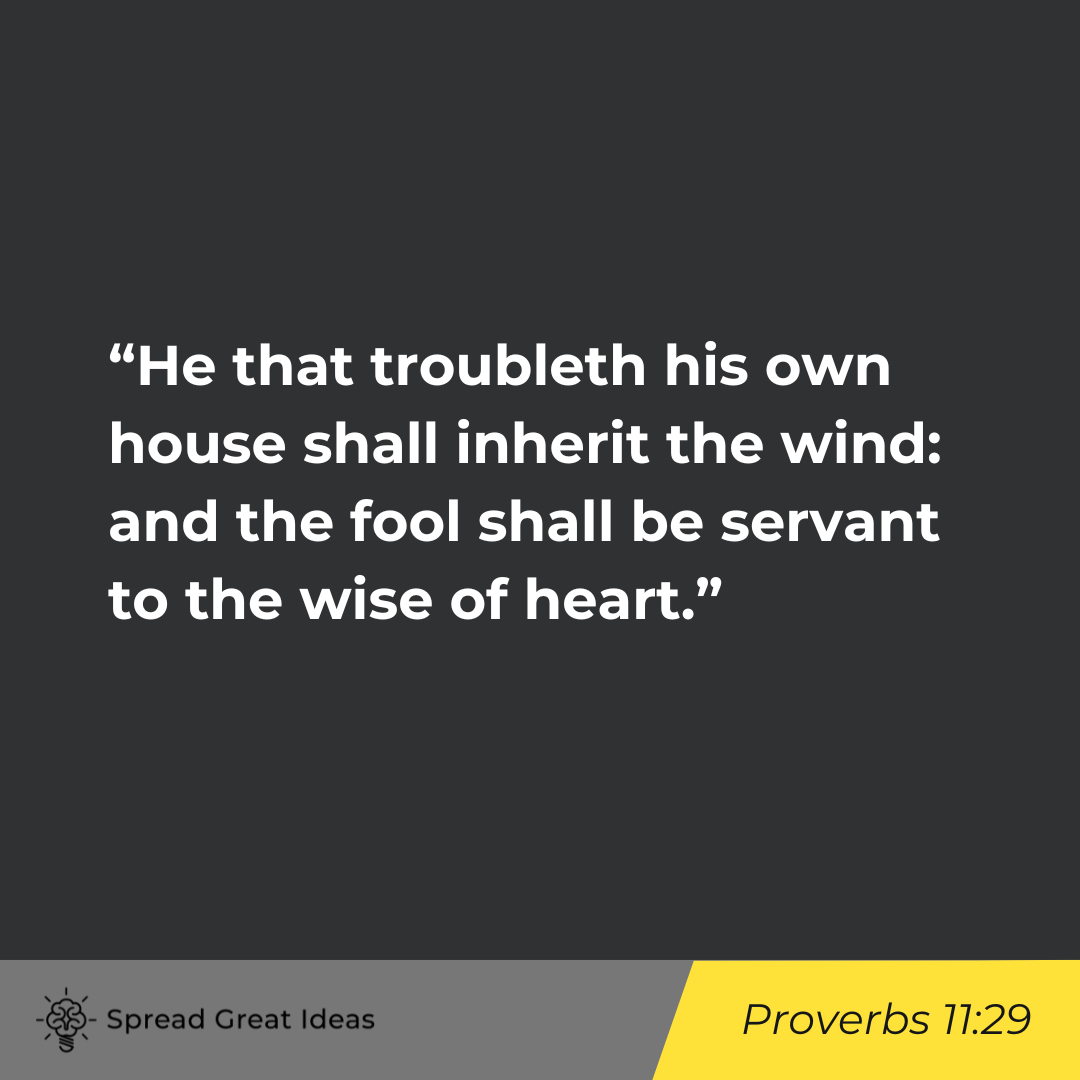
This proverb from the Book of Proverbs in the Bible warns against causing strife within one’s own household, suggesting that such actions will ultimately lead to empty or fruitless outcomes. It also highlights the contrast between the foolishness of those who disrupt harmony and the wisdom of those who maintain peace and understanding. This perspective underscores the importance of fostering harmony and wisdom within the family unit, as well as the potential consequences of discord and folly.
Proverbs 19:8
“To acquire wisdom is to love oneself; people who cherish understanding will prosper.”
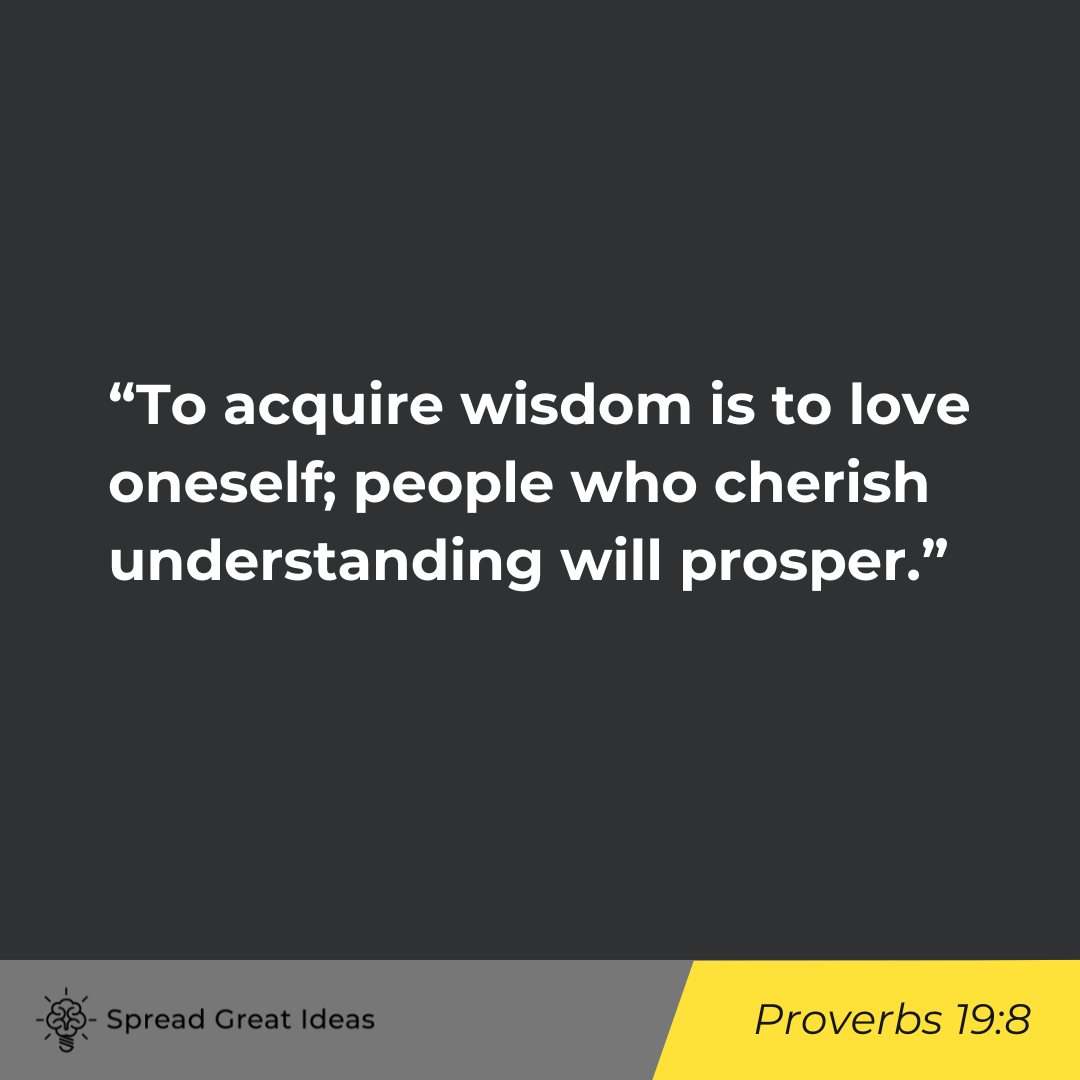
This proverb from the Book of Proverbs in the Bible emphasizes the intrinsic value of wisdom and understanding. It suggests that seeking wisdom is an act of self-love, as it leads to personal growth, prosperity, and well-being. By cherishing understanding, individuals can navigate life’s challenges more effectively and ultimately thrive. This perspective underscores the importance of valuing wisdom as a means of nurturing one’s own welfare and success.
Henry David Thoreau
“To be a philosopher is not merely to have subtle thoughts, not even to found a school, but so to love wisdom as to live, according to its dictates, a life of simplicity, independence, magnanimity, and trust.”
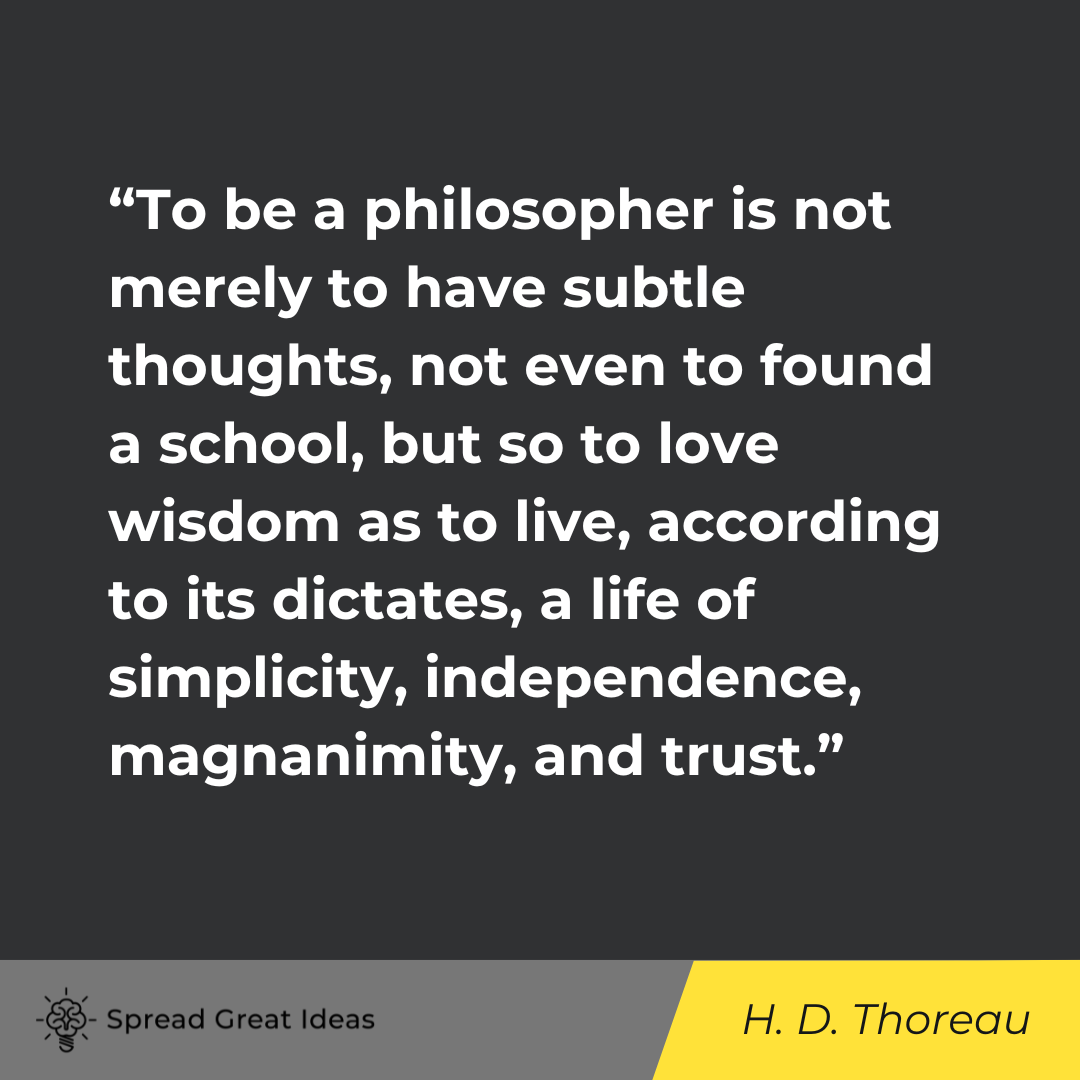
Henry David Thoreau’s quote redefines the essence of being a philosopher beyond mere intellectual pursuits. He suggests that true philosophy involves a deep love for wisdom that permeates one’s entire life, guiding one’s actions and choices. Thoreau emphasizes the importance of embodying wisdom in simplicity, independence, magnanimity, and trust, rather than merely engaging in abstract contemplation or academic discourse. This perspective underscores the transformative power of wisdom in shaping a meaningful and virtuous way of living.
Confucius
“By three methods we may learn wisdom: First, by reflection, which is noblest; Second, by imitation, which is easiest; and third by experience, which is the bitterest.”
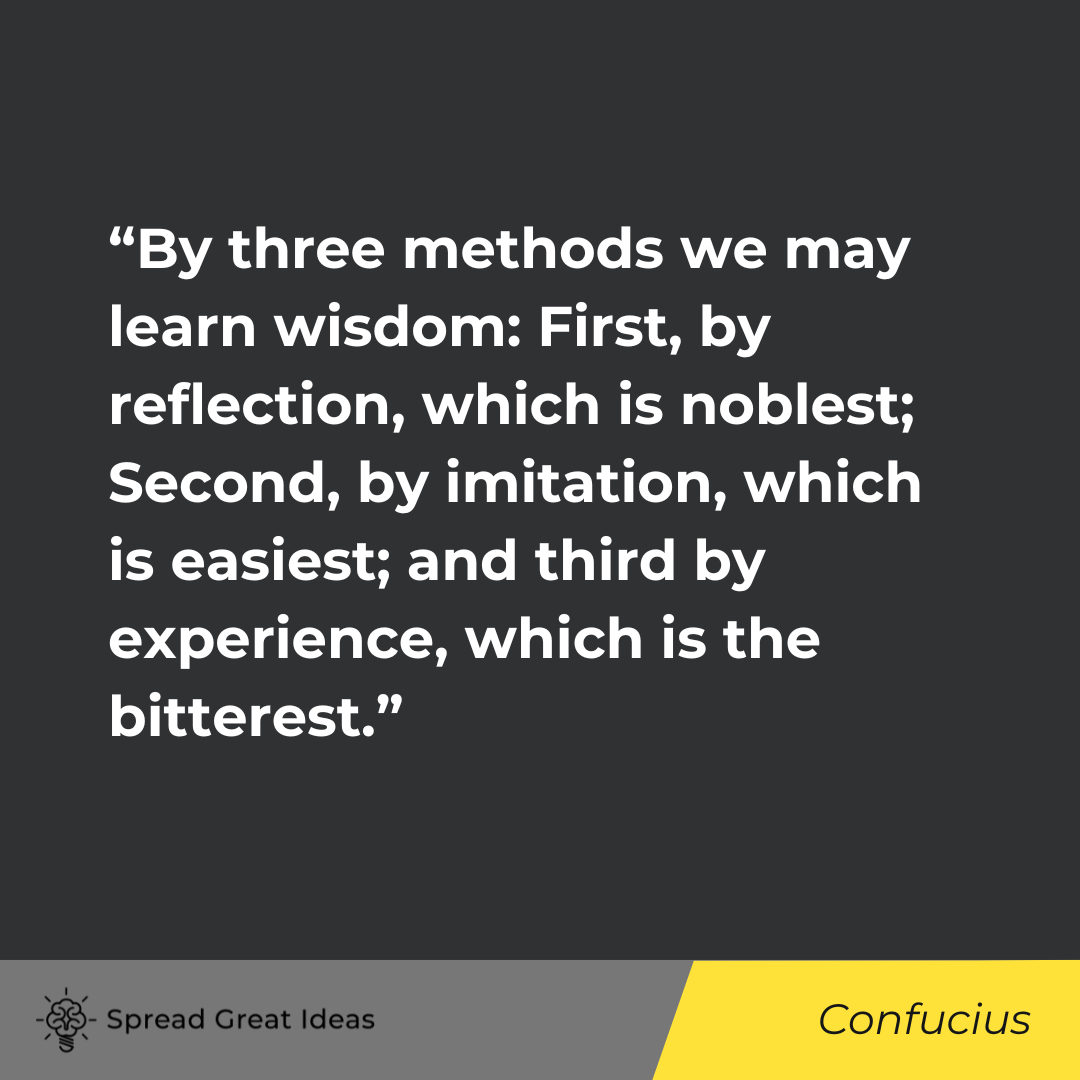
Confucius’ quote delineates the paths to wisdom through reflection, imitation, and experience. He suggests that reflecting on one’s experiences and insights is the noblest and most profound method of learning. However, he also acknowledges the simplicity of learning through imitation, where one emulates the actions and behaviors of others. Lastly, Confucius notes that while experience can be a harsh teacher, it is nonetheless invaluable in deepening one’s understanding and wisdom. This perspective highlights the multifaceted nature of learning and underscores the importance of diverse approaches in acquiring wisdom.
H.L. Mencken
“The older I grow, the more I distrust the familiar doctrine that age brings wisdom.”
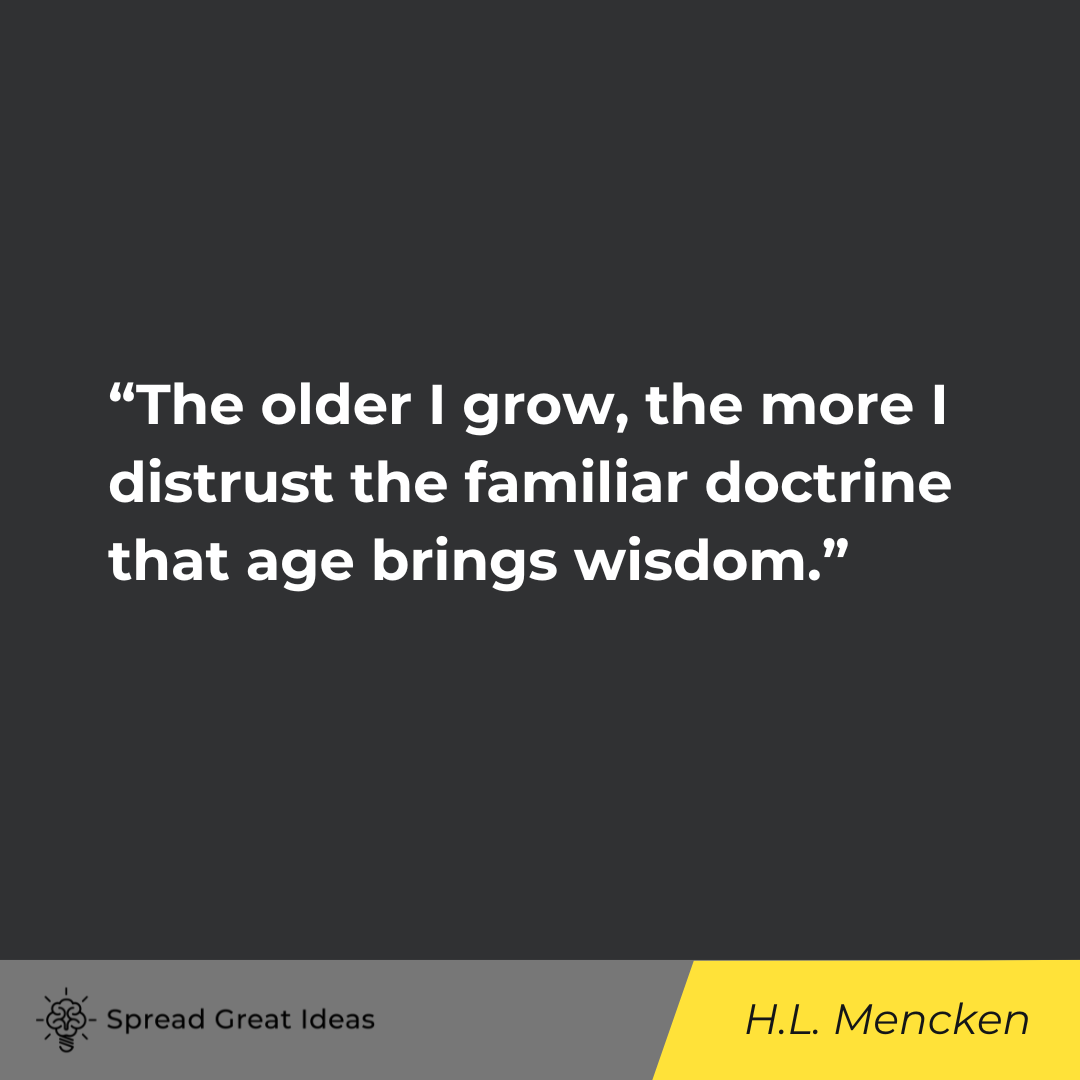
H.L. Mencken’s quote challenges the conventional belief that wisdom naturally accompanies age. He expresses skepticism towards the notion that simply growing older inherently leads to greater wisdom. This perspective suggests that wisdom is not solely determined by age but rather by individual experiences, insights, and personal growth. Mencken’s statement encourages critical examination of societal assumptions about aging and wisdom, urging individuals to recognize that wisdom can be attained at any stage of life, regardless of age.
Francis Bacon
“Reading maketh a full man, conference a ready man, and writing an exact man.”
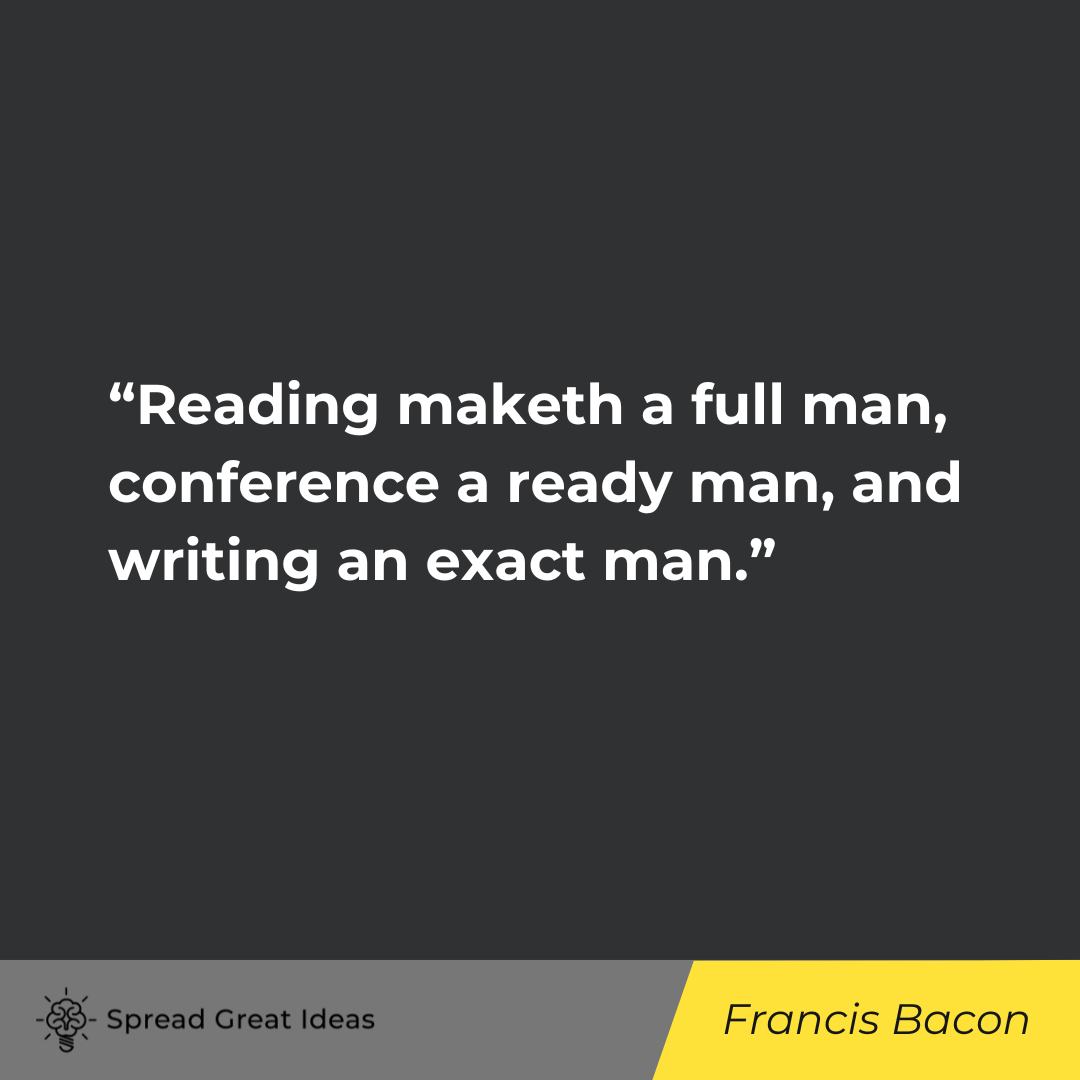
Francis Bacon’s quote extols the virtues of different forms of intellectual engagement. He suggests that reading enriches the mind, fostering depth and breadth of knowledge. Additionally, engaging in conversation hones one’s ability to articulate thoughts and ideas with ease and fluency. Finally, writing fosters precision and clarity in expression, refining one’s ability to communicate with accuracy and detail. This perspective underscores the importance of diverse intellectual pursuits in cultivating a well-rounded and articulate individual.
Joseph Addison
“What sculpture is to a block of marble, education is to a human soul.”
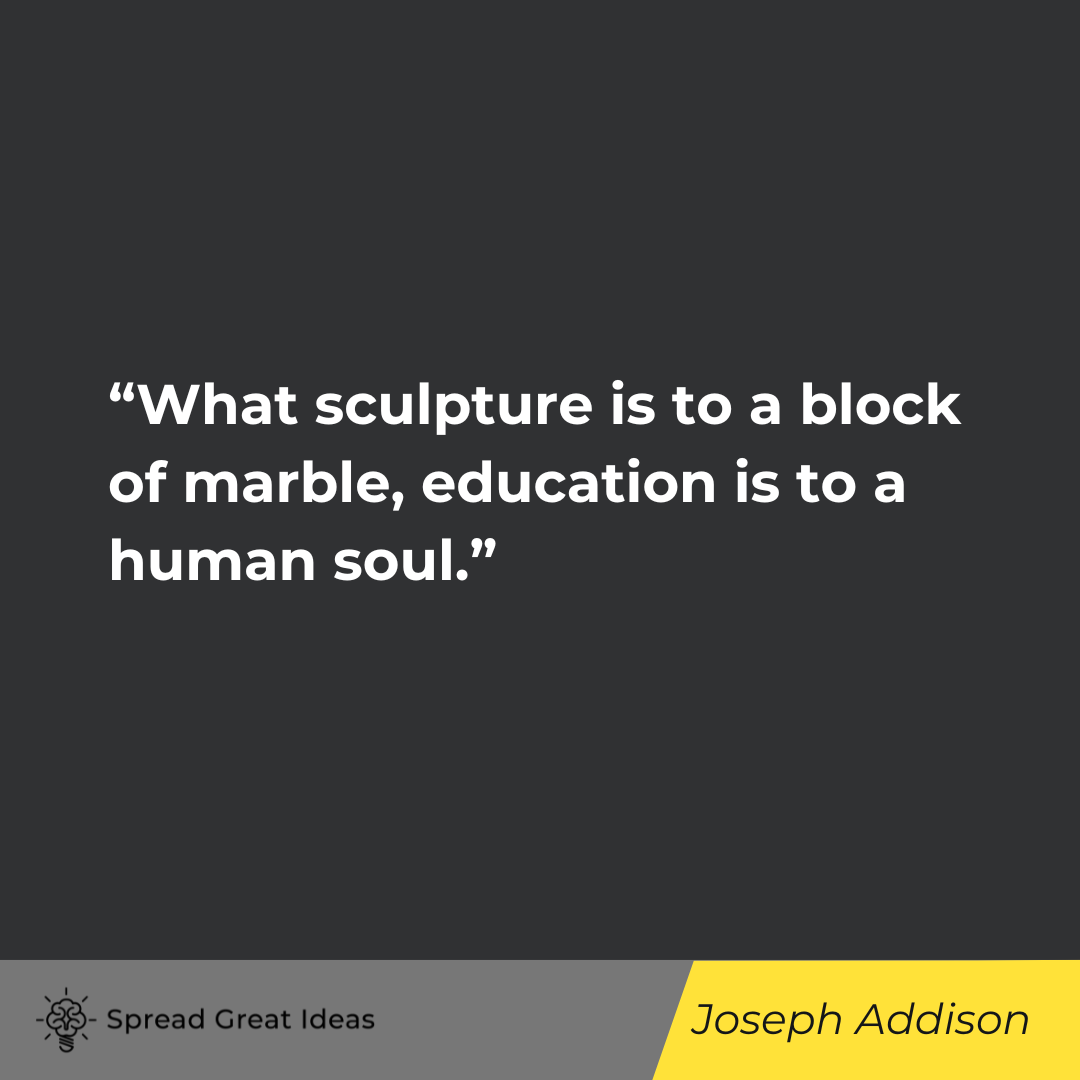
Joseph Addison’s quote beautifully compares education to the transformative process of sculpting marble into a work of art. He suggests that just as a sculptor shapes and refines a block of marble into a masterpiece, education molds and enriches the human soul, unlocking its potential and beauty. This perspective underscores the profound impact of education in shaping individuals, empowering them to fulfill their potential and contribute meaningfully to society.
Karl Lagefeld
“Anyone who is not at least trilingual is a hick.”
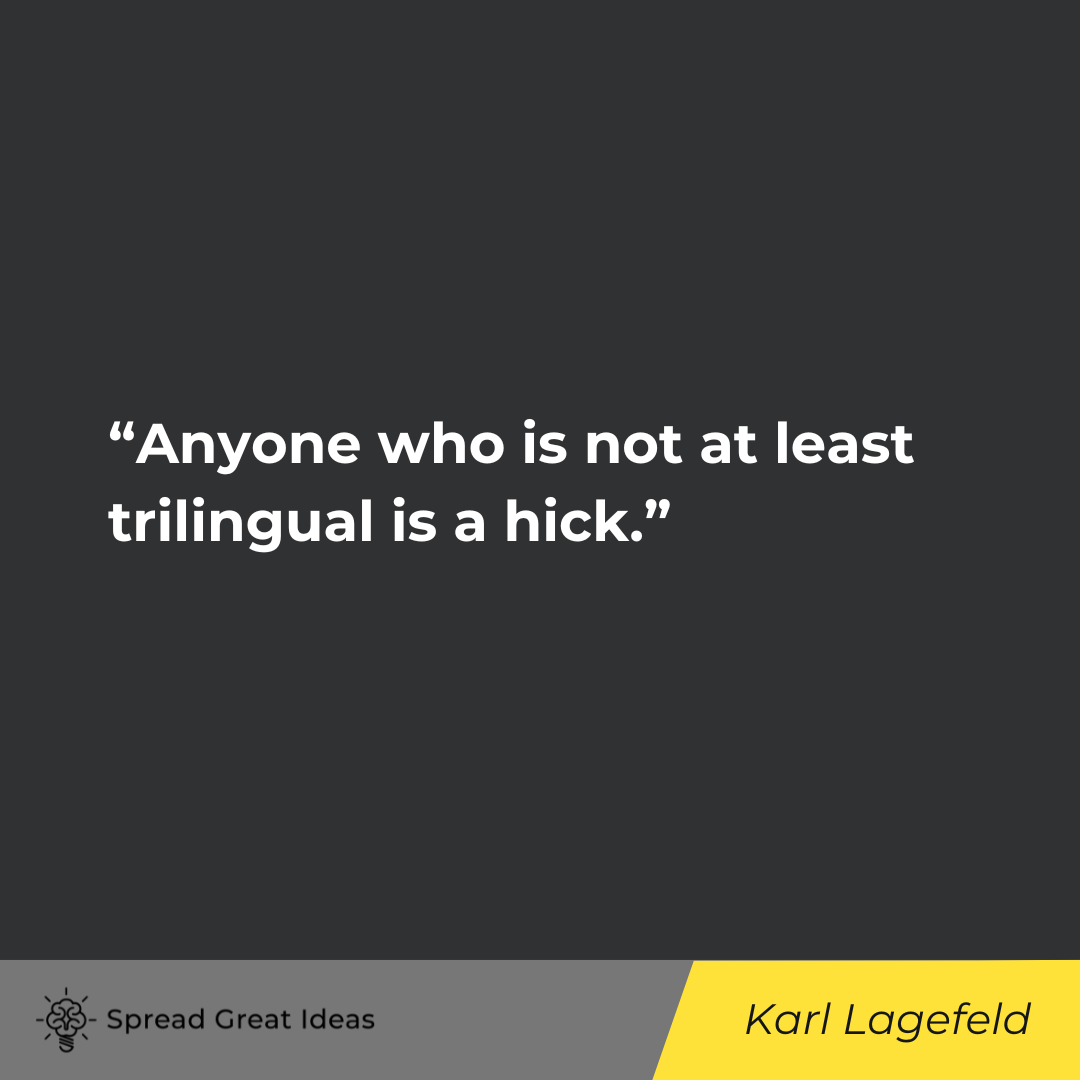
Karl Lagerfeld’s quote humorously emphasizes the value of linguistic proficiency in a multicultural world. He playfully suggests that individuals who speak only one or two languages may be considered unsophisticated, using the term “hick” to convey a lack of cosmopolitanism. This perspective underscores the practical and cultural advantages of being multilingual, highlighting the importance of embracing linguistic diversity in today’s globalized society.
Rumi
“Yesterday I was clever, so I wanted to change the world. Today I am wise, so I am changing myself.”
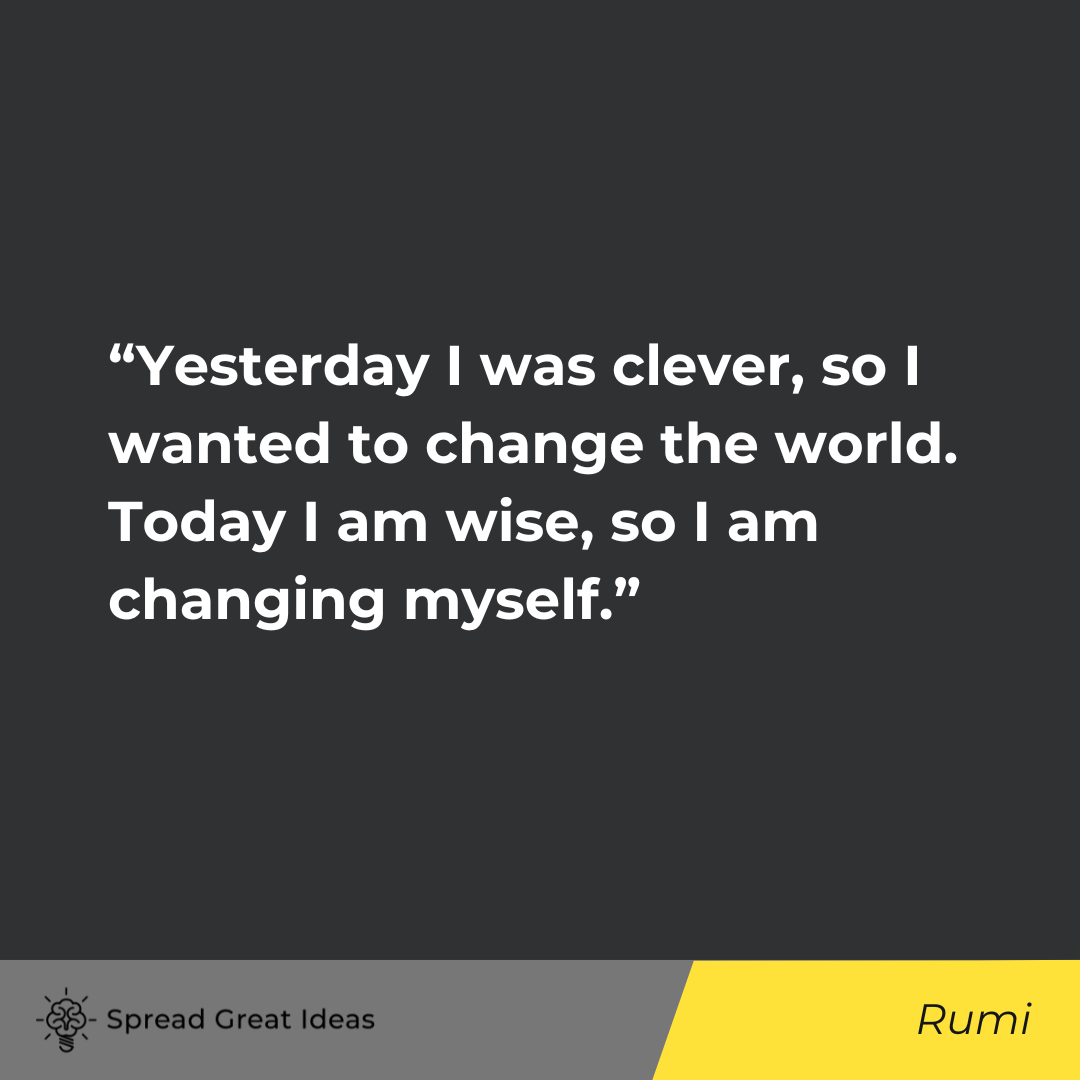
Rumi’s quote reflects a profound shift in perspective from idealism to introspection and personal growth. It suggests that as individuals mature and gain wisdom, their focus shifts from attempting to change the external world to prioritizing self-improvement and inner transformation. This perspective underscores the transformative power of self-awareness and personal development in fostering positive change, both within oneself and in the broader context of society.
Nassim Nicholas
“When the beard (or hair) is black, heed the reasoning, but ignore the conclusion. When the beard is gray, consider both reasoning and conclusion. When the beard is white, skip the reasoning, but mind the conclusion.”
– Nassim Nicholas Taleb, Skin in the Game
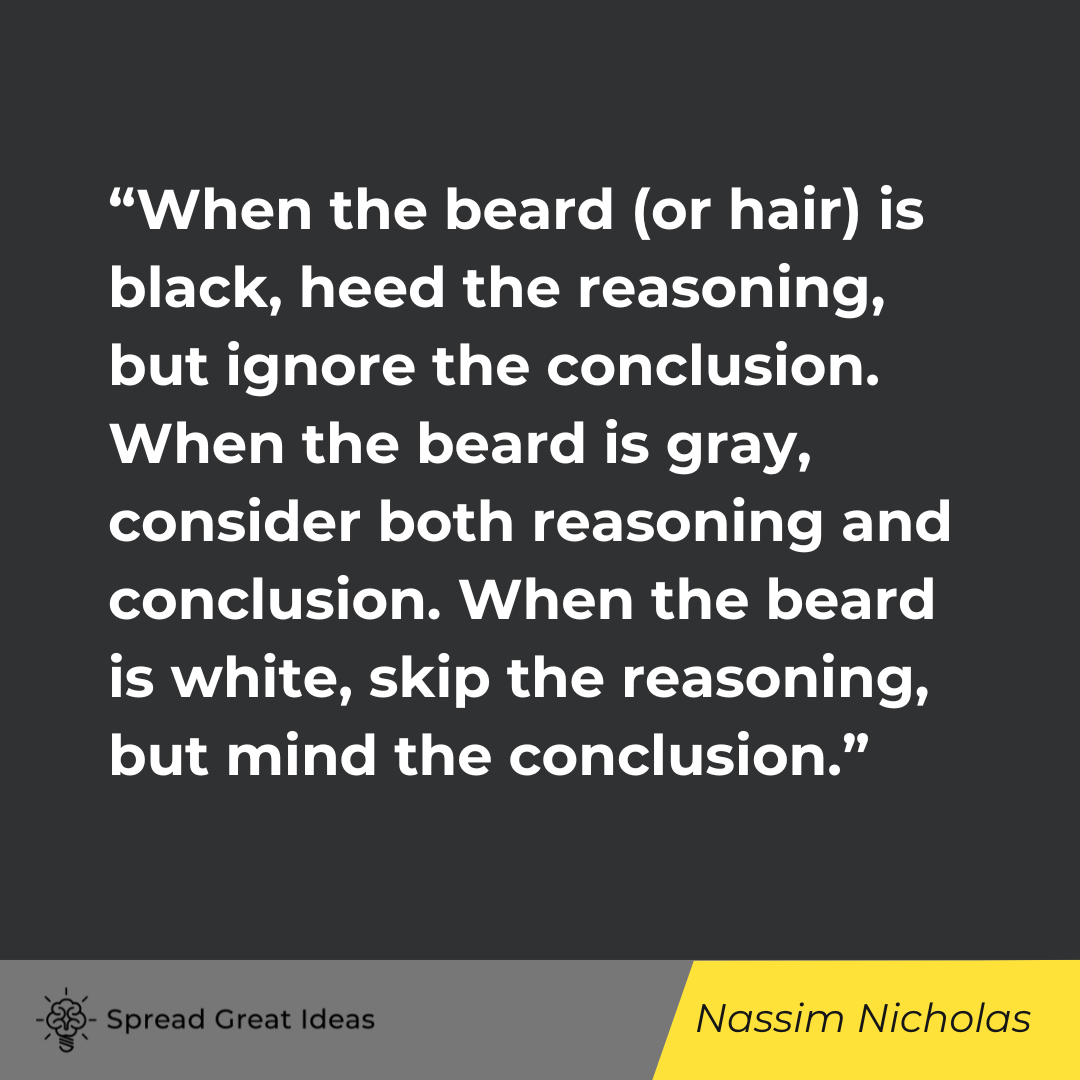
Nassim Nicholas Taleb’s quote provides a metaphorical guide for assessing wisdom based on age. It suggests that individuals with black hair or beards may possess sound reasoning but may lack wisdom in their conclusions. As one’s hair or beard turns gray, both reasoning and conclusions merit consideration. Finally, those with white hair or beards are deemed to have accrued enough wisdom over time that their conclusions are worth heeding, regardless of their reasoning. This perspective highlights the importance of discernment in evaluating advice and insights from individuals of varying levels of life experience.
Saint Augustine
“The world is a book, and those who do not travel, read only one page.”
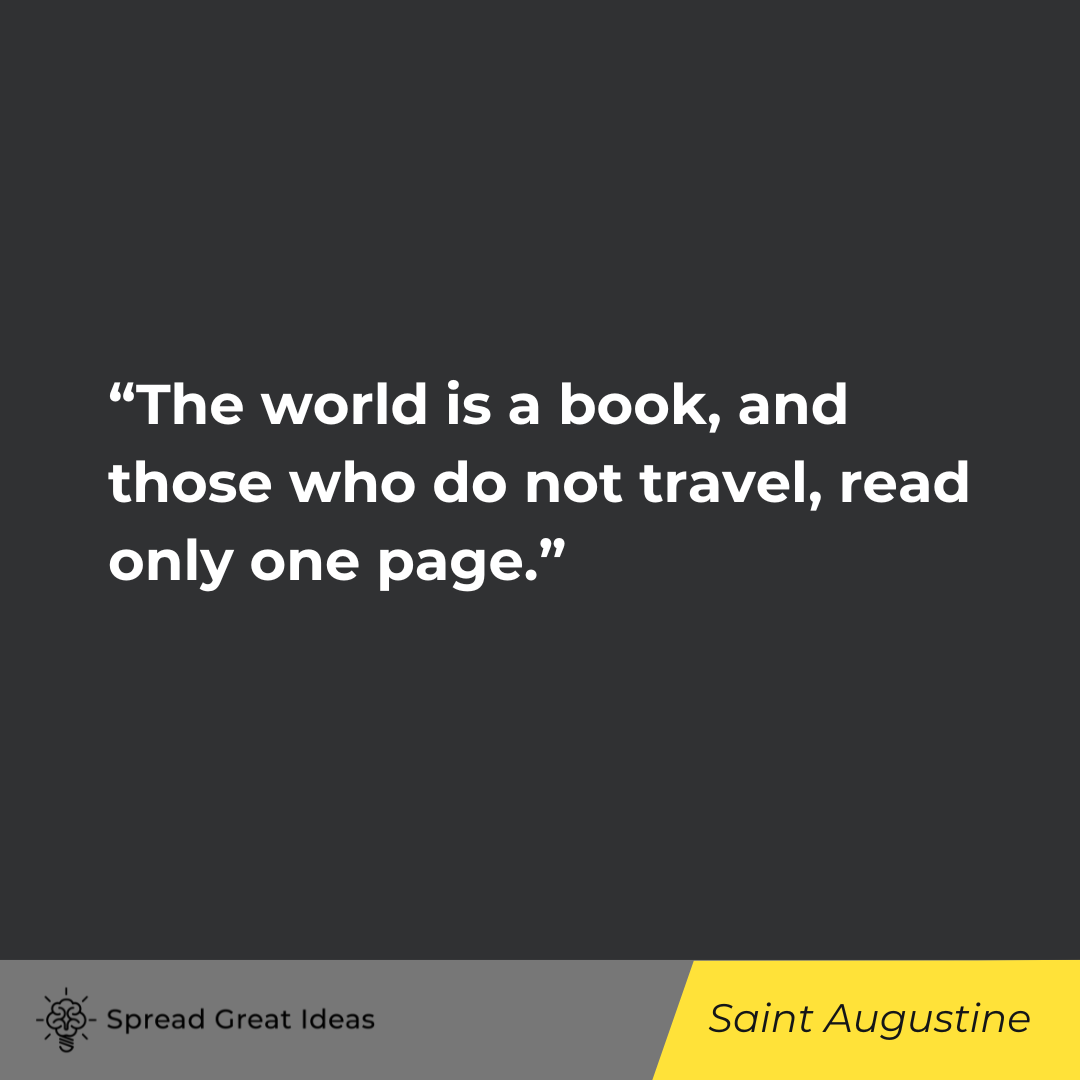
Saint Augustine’s quote metaphorically compares the world to a book, suggesting that travel is essential for gaining a comprehensive understanding of it. He implies that those who remain in one place or fail to explore the diversity of the world are limited to experiencing only a fraction of its richness and complexity. This perspective underscores the transformative power of travel in broadening one’s horizons, fostering cultural appreciation, and expanding personal knowledge and understanding.
William Shakespeare
“The fool doth think he is wise, but the wise man knows himself to be a fool.”
– William Shakespeare, As You Like It
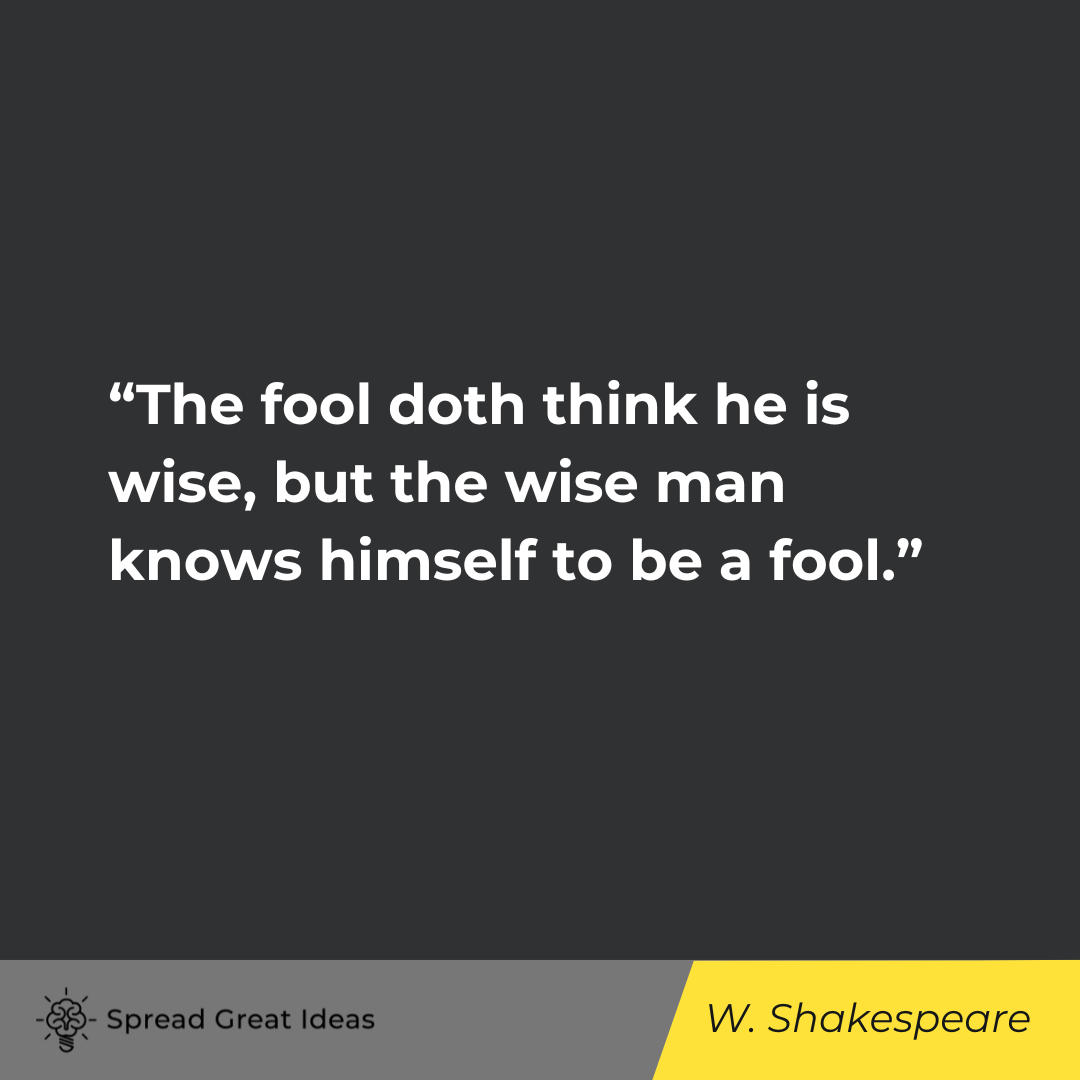
William Shakespeare’s quote from “As You Like It” highlights the contrast between ignorance and self-awareness. It suggests that foolish individuals often believe themselves to be wise, while truly wise individuals recognize their own limitations and embrace humility. This perspective underscores the importance of self-awareness and introspection in the pursuit of true wisdom, as well as the folly of overestimating one’s own knowledge and understanding.
Johnathan Swift
“May you live every day of your life.”

Jonathan Swift’s quote encapsulates the essence of living fully and embracing each day with intention and purpose. It serves as a heartfelt wish for a life rich in experiences, growth, and fulfillment. This perspective underscores the importance of seizing the present moment and making the most of every opportunity, rather than merely existing passively. Swift’s words inspire individuals to live each day to its fullest potential, savoring the joys and challenges that life brings.
Joseph Campbell
“We must be willing to let go of the life we planned so as to have the life that is waiting for us.”
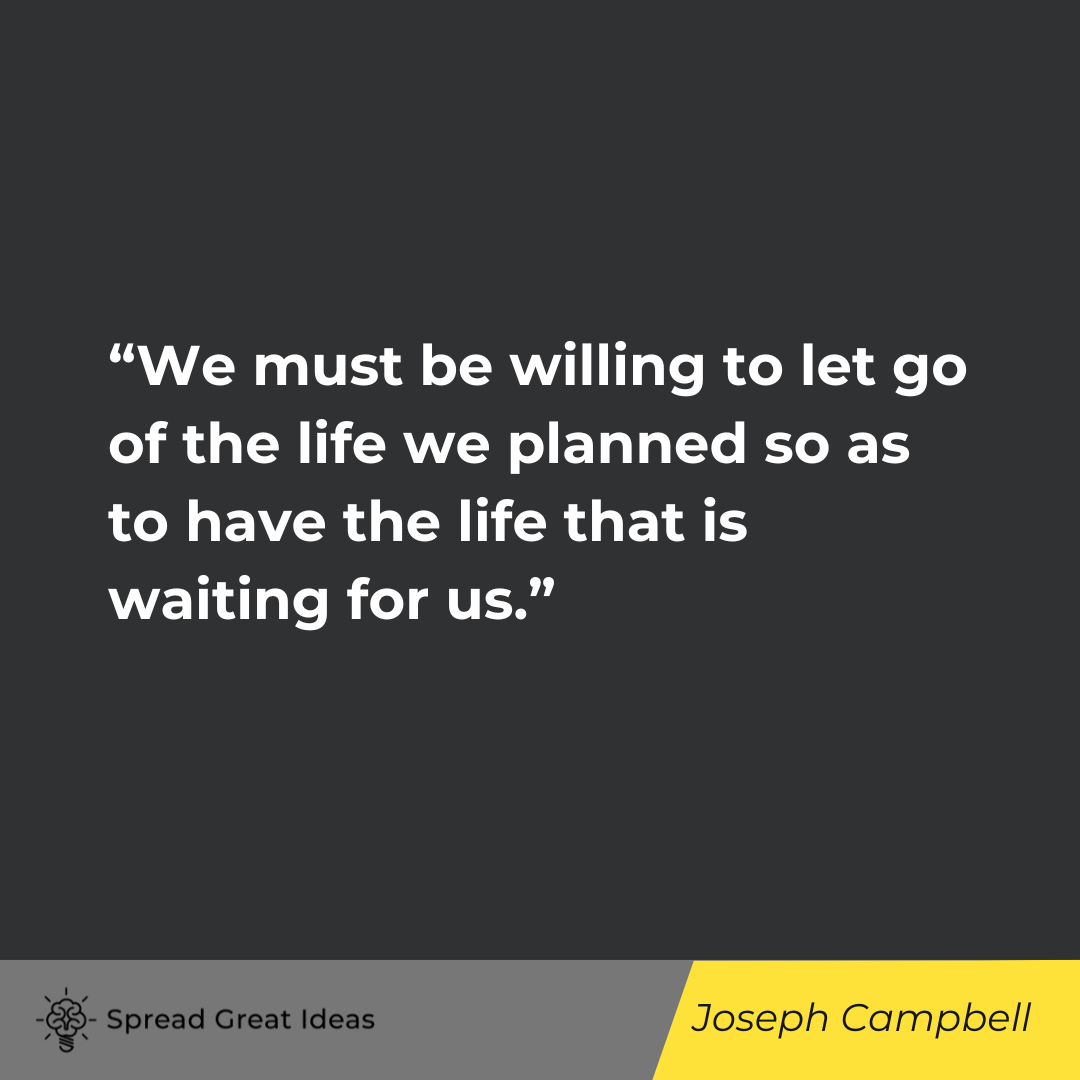
Joseph Campbell’s quote speaks to the importance of flexibility and adaptability in navigating life’s journey. It suggests that sometimes, in order to embrace the opportunities and possibilities that await us, we must release our attachment to rigid plans or expectations. This perspective encourages individuals to approach life with openness and receptivity, recognizing that unforeseen paths may lead to unexpected and fulfilling destinations. It underscores the transformative power of letting go and trusting in the unfolding of our unique life experiences.
Ralph Waldo Emerson
“The invariable mark of wisdom is to see the miraculous in the common.”
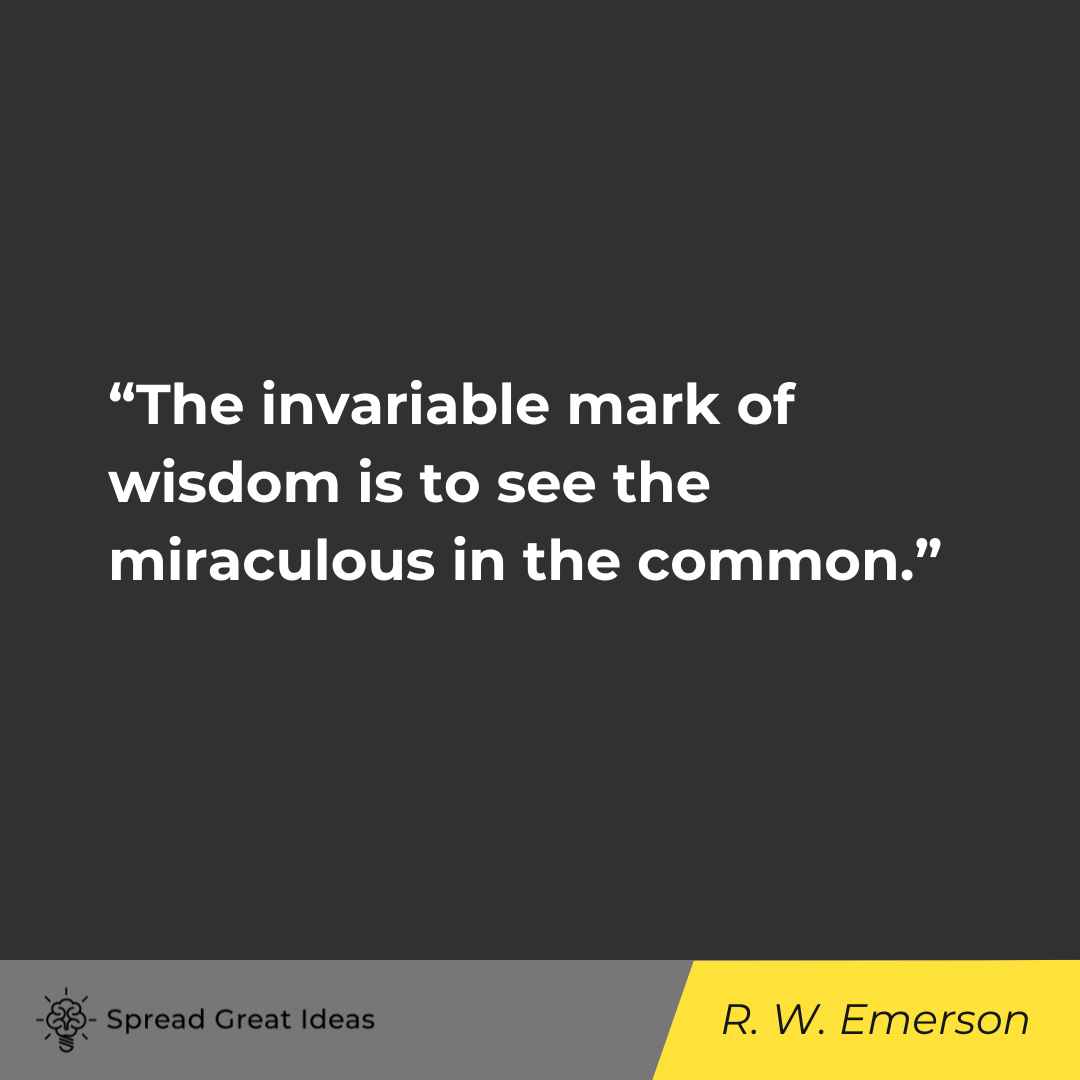
Ralph Waldo Emerson’s quote celebrates the discerning eye of wisdom, which finds wonder and beauty in the everyday occurrences of life. It suggests that true wisdom lies not in seeking extraordinary experiences, but in recognizing the extraordinary within the ordinary. This perspective encourages individuals to cultivate a deeper appreciation for the simple and mundane aspects of existence, recognizing their inherent value and significance. Emerson’s words inspire a shift in perception, inviting us to discover the profound and miraculous within the commonplace occurrences of daily life.
Quotes About Philosophy
Immanuel Kant
“Metaphysics is a dark ocean without shores or lighthouse, strewn with many a philosophic wreck.”
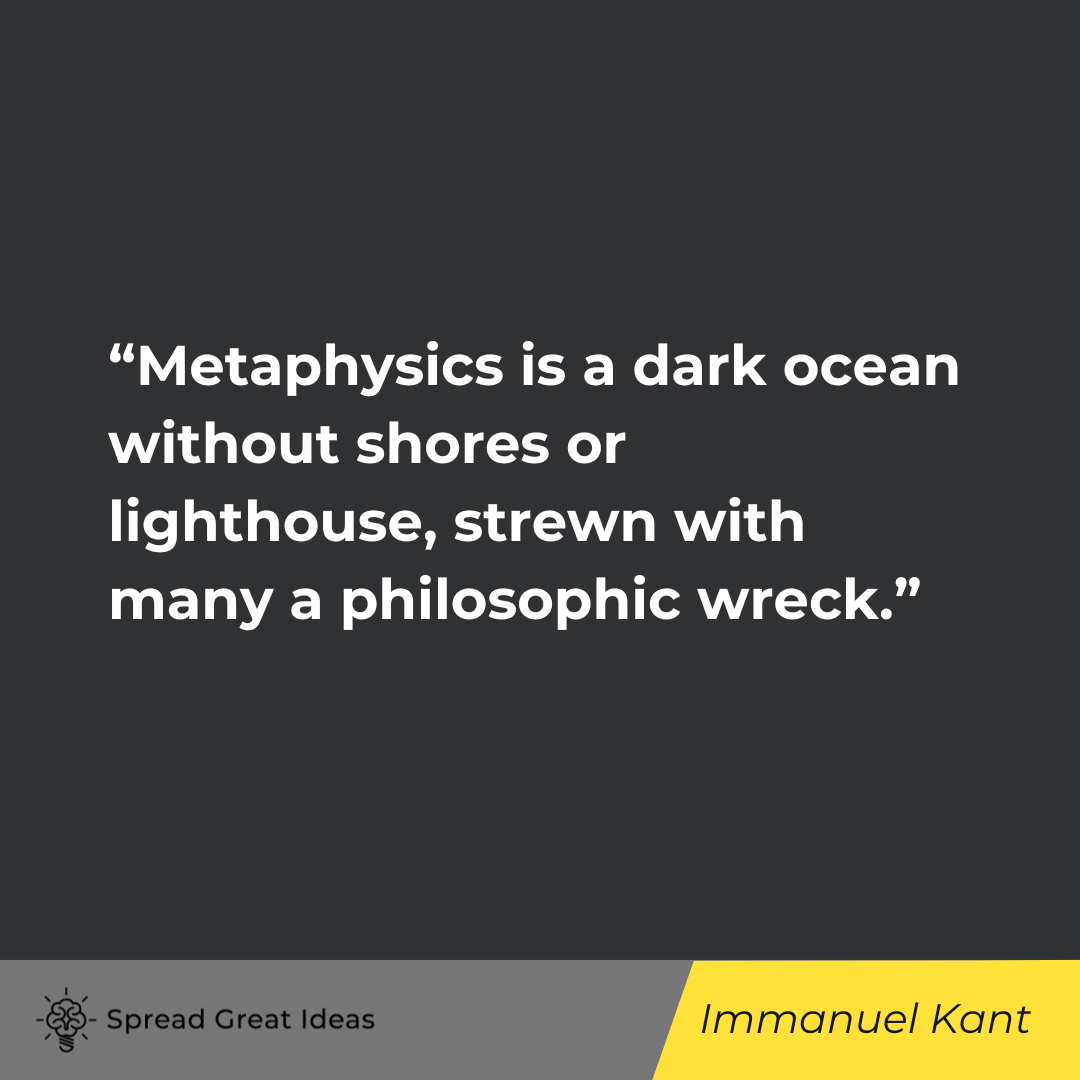
Immanuel Kant’s quote vividly portrays the vast and treacherous realm of metaphysics. It likens metaphysics to a boundless and perilous sea, lacking any fixed boundaries or guiding lights, where countless philosophical endeavors have met with failure or uncertainty. This imagery highlights the daunting complexity and inherent challenges of exploring metaphysical questions, which often lead philosophers into murky waters fraught with conceptual difficulties and contradictions. Kant’s metaphor serves as a cautionary reminder of the inherent limitations and uncertainties of metaphysical inquiry.
Alan Watts
“Science used to be called natural philosophy. Aristotle once said that “The beginning of philosophy is wonder.” Philosophy is man’s expression of curiosity about everything and his attempt to make sense of the world primarily through his intellect; that is to say, his faculty for thinking.”
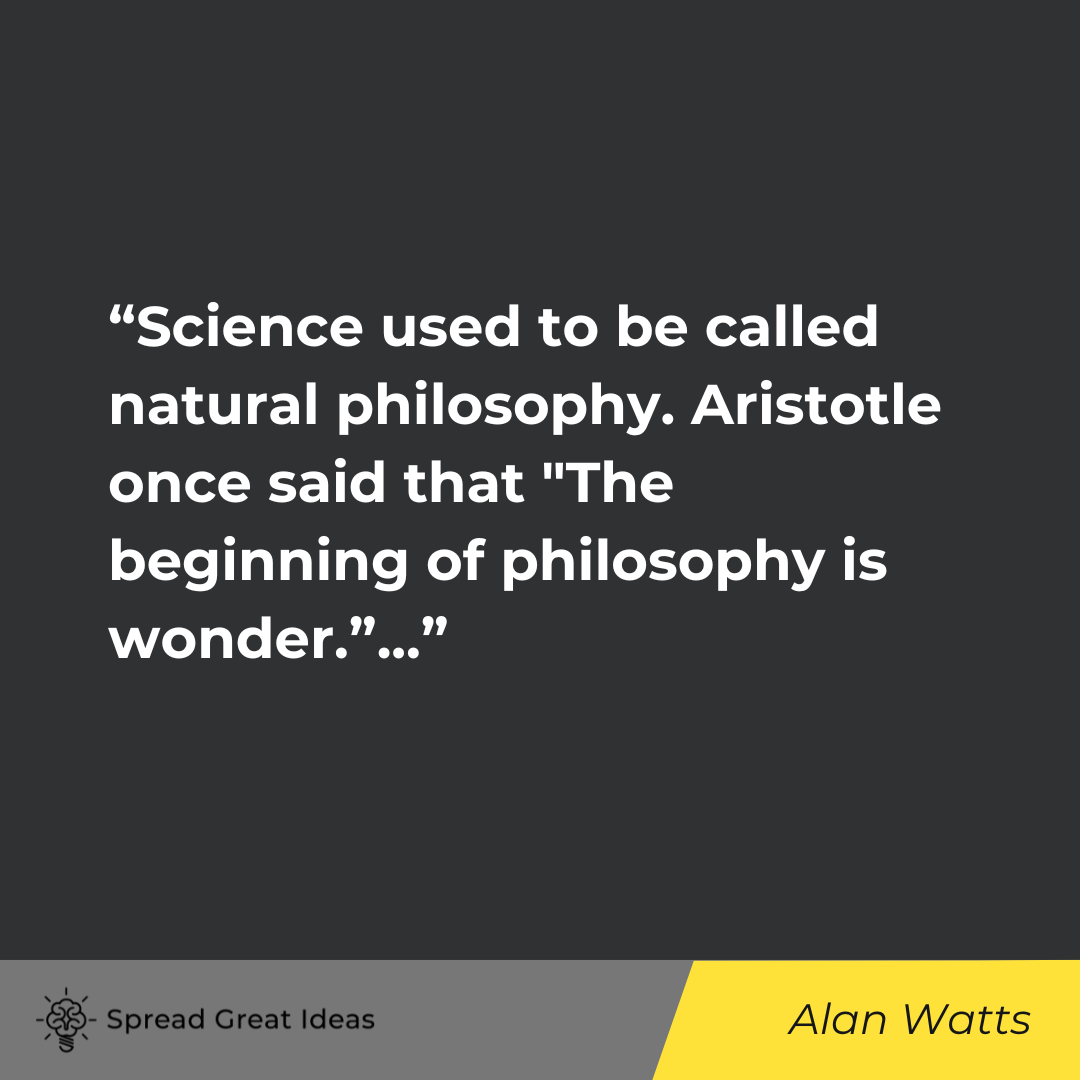
Alan Watts’ quote reflects on the origins and nature of philosophy, drawing connections between science, philosophy, and wonder. He highlights the historical link between science and philosophy, noting Aristotle’s assertion that wonder serves as the foundation of philosophical inquiry. Watts emphasizes that philosophy arises from humanity’s innate curiosity about the world and our desire to comprehend it through intellectual exploration. This perspective underscores the role of philosophy as a means of engaging with life’s mysteries and complexities, using the intellect to unravel the enigmas of existence.
Unknown
“What’s really heavy but weighs nothing at all? Nihilism.”
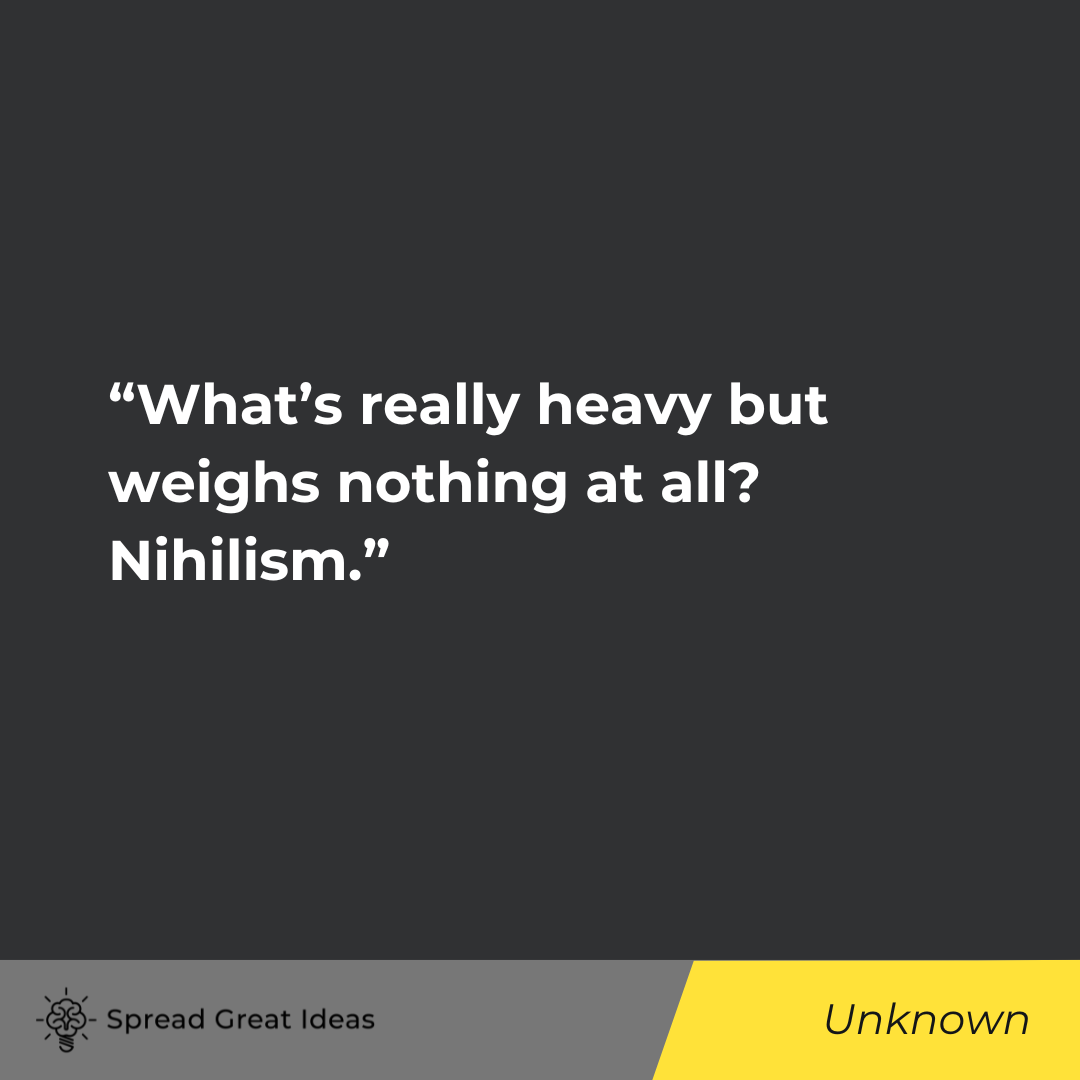
This quote humorously captures the paradoxical nature of nihilism, a philosophical belief system that asserts the meaninglessness or insignificance of existence. It suggests that while nihilism may carry a profound existential weight in its denial of inherent meaning or value, it ultimately amounts to nothingness, possessing no tangible substance or weight. This play on words highlights the existential dilemma inherent in nihilistic thought, where the weightiness of philosophical inquiry clashes with the void of nihilistic conclusions.
René Descartes
“I think therefore I am.”

René Descartes’ famous quote, “I think, therefore I am,” encapsulates his philosophical assertion of self-existence through the act of thinking. It serves as the foundation of his methodical doubt, wherein he doubts all things except for the certainty of his own existence as a thinking being. This cogito, or “I think,” becomes the indubitable starting point for Descartes’ philosophy, affirming the existence of the self as a conscious, thinking entity. This quote succinctly captures Descartes’ epistemological quest for certainty and his assertion of the primacy of individual consciousness in the realm of knowledge and existence.
René Descartes
“One cannot conceive anything so strange and so implausible that it has not already been said by one philosopher or another.”
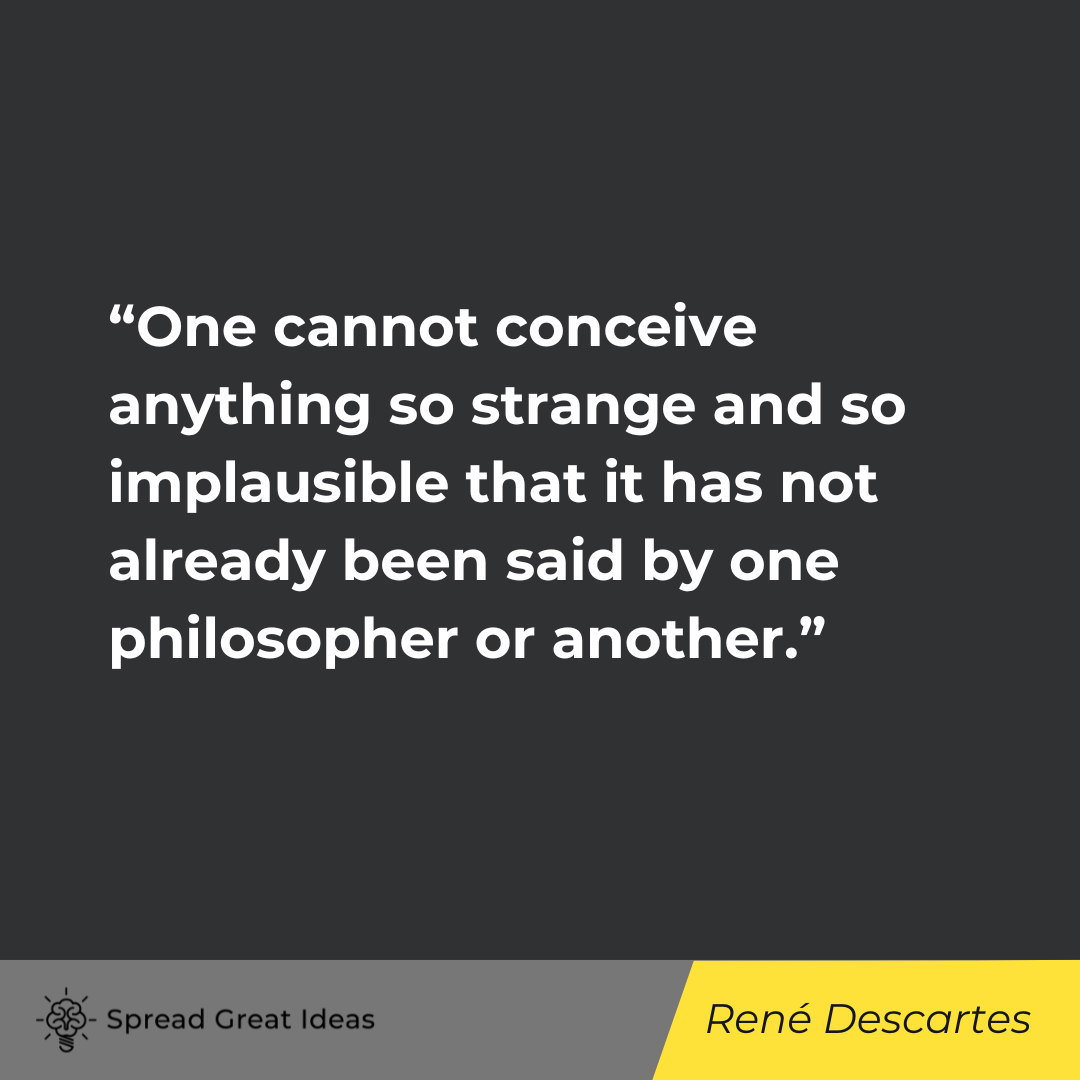
René Descartes’ quote humorously acknowledges the vast and varied landscape of philosophical thought. It suggests that the realm of philosophy is so expansive and diverse that even the most bizarre or improbable ideas have likely been articulated by philosophers at some point in history. This perspective underscores the breadth of human imagination and the boundless creativity of philosophical inquiry, highlighting the capacity of philosophers to explore and express a wide range of concepts, no matter how strange or implausible they may seem.
Seneca the Younger
“Even while they teach, men learn.”
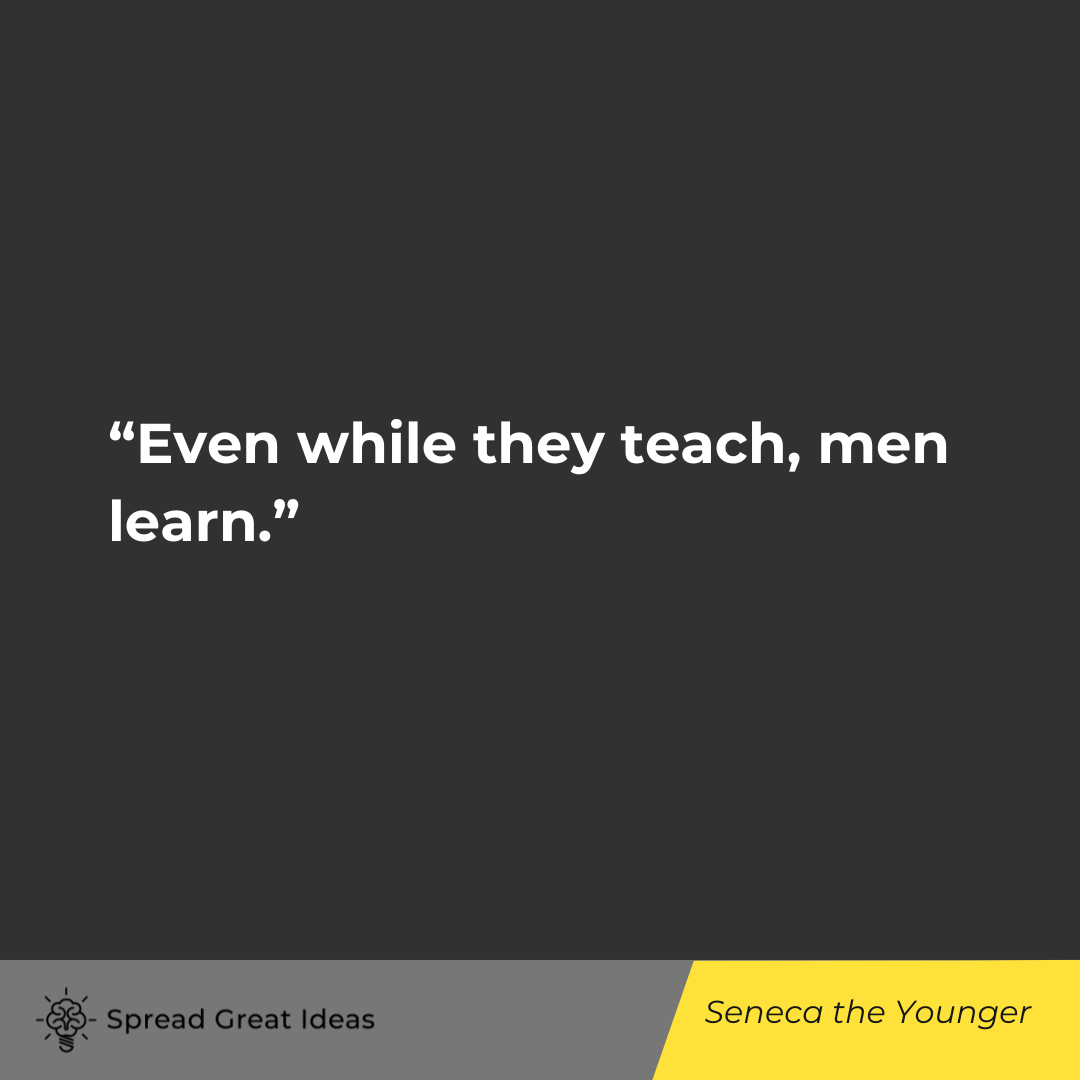
Seneca the Younger’s quote reflects on the reciprocal nature of teaching and learning. It suggests that the act of teaching is not a one-way process but rather an opportunity for both the teacher and the student to engage in learning. Even as individuals impart knowledge to others, they continue to deepen their understanding and insight. This perspective underscores the dynamic and interactive nature of education, where the exchange of ideas enriches the learning experience for all involved.
William James
“Philosophy is at once the most sublime and the most trivial of human pursuits.”
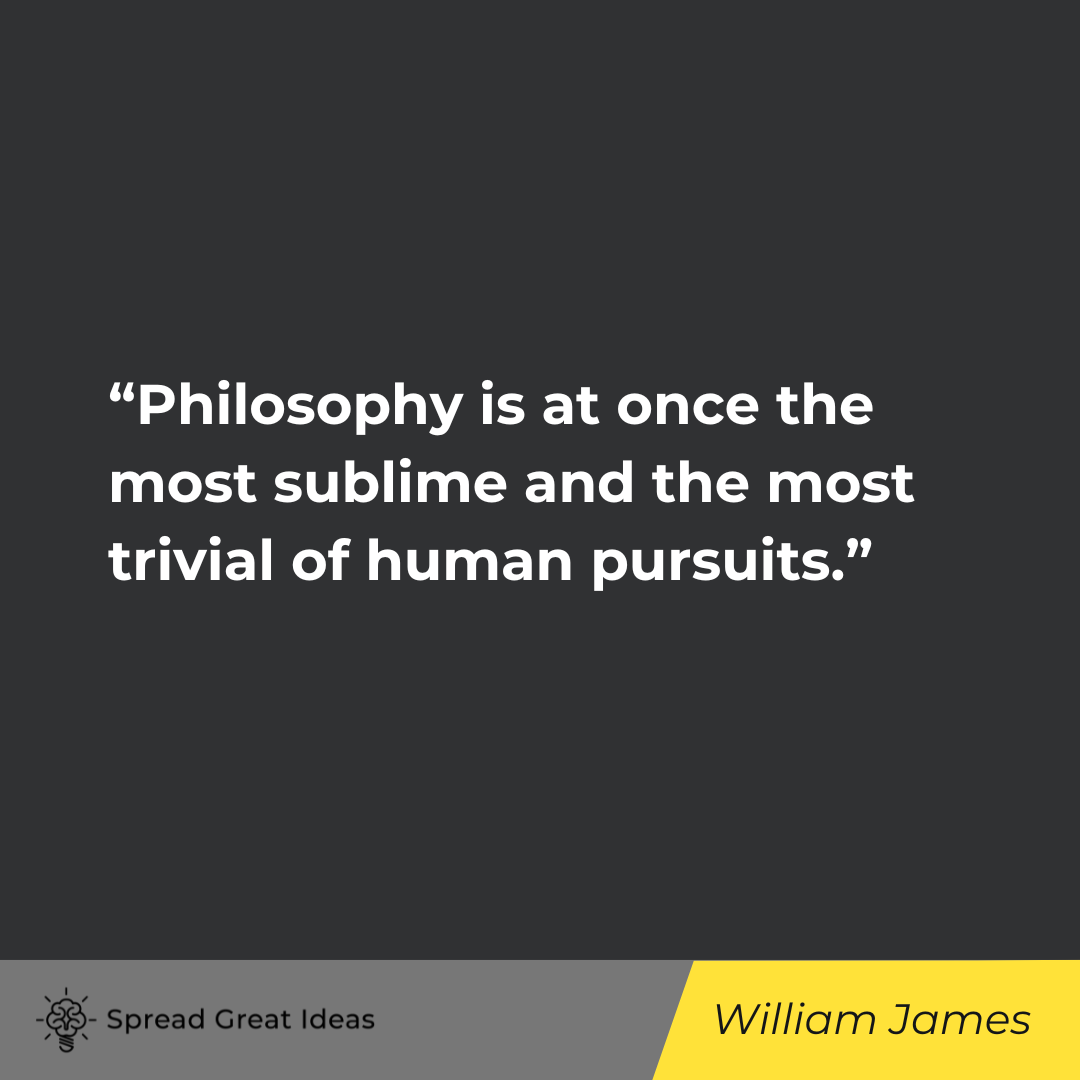
William James’ quote encapsulates the dual nature of philosophy, highlighting its capacity for both profound inquiry and mundane speculation. It suggests that philosophy encompasses a wide spectrum of endeavors, ranging from lofty contemplations of life’s deepest mysteries to seemingly trivial ponderings on everyday matters. This perspective underscores the breadth and diversity of philosophical inquiry, which can encompass everything from existential questions about the nature of existence to practical reflections on the minutiae of daily life. James’ quote invites contemplation on the multifaceted nature of philosophy and its ability to encompass both the sublime and the mundane aspects of human experience.
Thomas Hobbes
“Leisure is the mother of philosophy.”
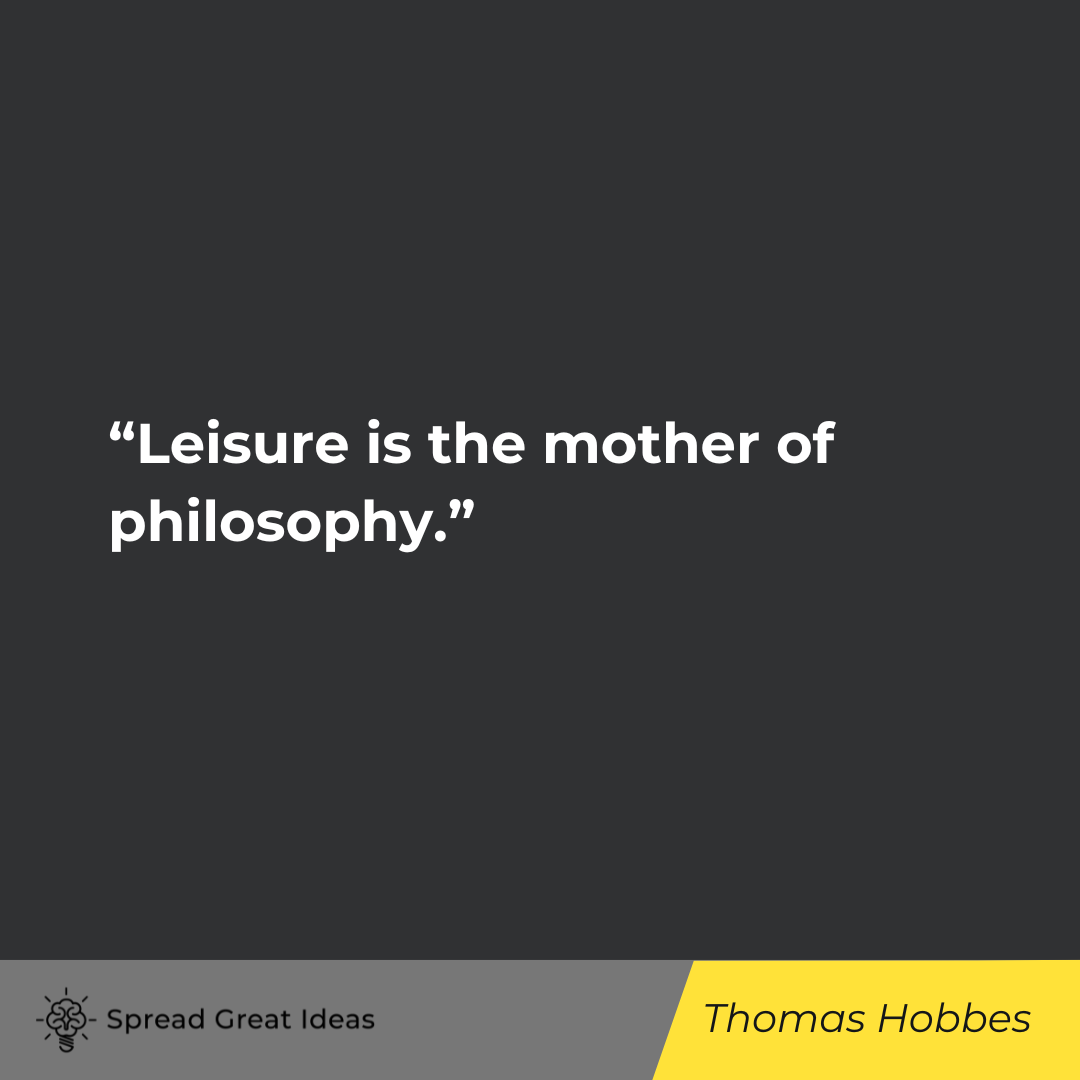
Thomas Hobbes’ quote suggests that philosophy often arises during moments of leisure or contemplation. It implies that when individuals have the time and space to reflect deeply on the nature of existence, they are more likely to engage in philosophical inquiry. This perspective underscores the importance of leisure time in fostering intellectual curiosity and exploration. Hobbes’ quote highlights the notion that philosophy is not solely a scholarly pursuit but can also emerge from moments of relaxation and introspection, emphasizing the value of leisure in nurturing the human intellect.
Bertrand Russell
“Science is what you know. Philosophy is what you don’t know.”
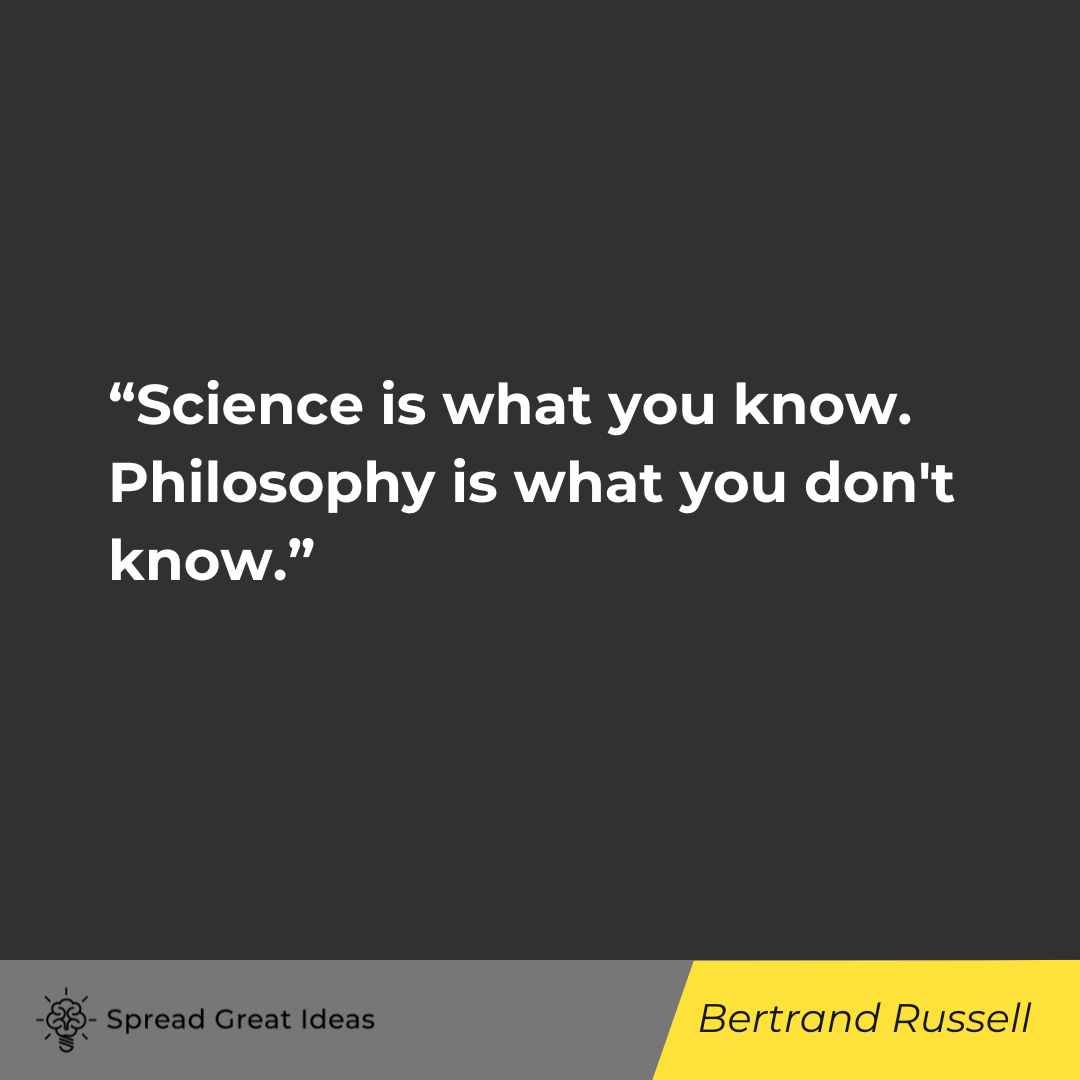
Bertrand Russell’s quote draws a distinction between science, which deals with established knowledge, and philosophy, which grapples with the unknown. It suggests that while science seeks to uncover and understand the facts and principles governing the natural world, philosophy delves into the realms of uncertainty, exploring questions that lie beyond the scope of empirical investigation. This perspective underscores the complementary nature of science and philosophy, with science addressing the known and philosophy probing the mysteries that remain unanswered. Russell’s quote invites reflection on the expansive and speculative nature of philosophical inquiry, which seeks to illuminate the unknown and challenge the boundaries of human understanding.
Bertrand Russell
“Dogmatism and skepticism are both, in a sense, absolute philosophies; one is certain of knowing, the other of not knowing. What philosophy should dissipate is certainty, whether of knowledge or ignorance.”
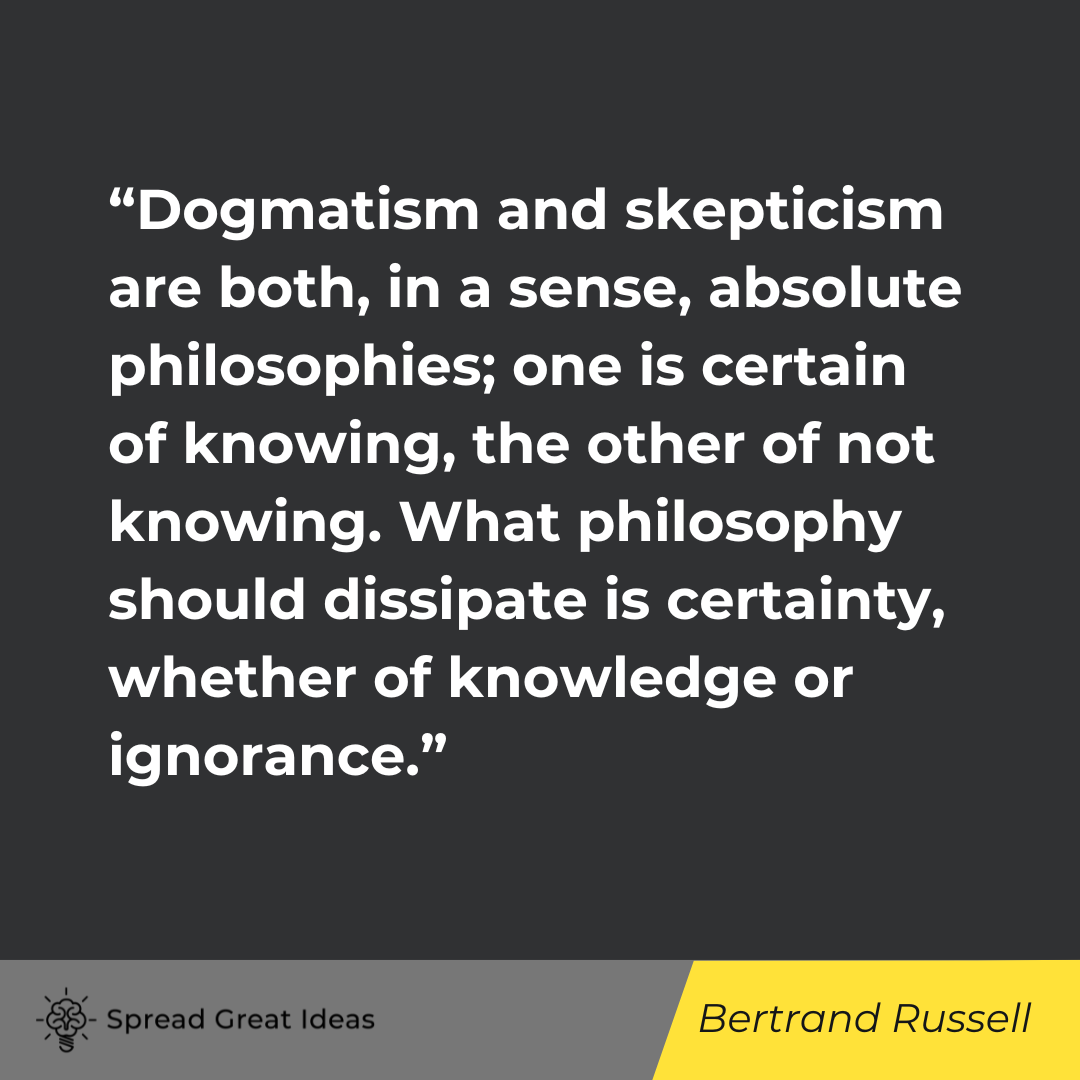
Bertrand Russell’s quote highlights the contrast between dogmatism and skepticism in philosophy. Dogmatism asserts certainty in one’s knowledge, while skepticism denies the possibility of knowing. Russell suggests that both positions are absolute in their own right and hinder philosophical inquiry by promoting unwavering certainty. Instead, he advocates for a philosophy that dispels certainty, whether it be certainty in what is known or what is not known. This perspective underscores the importance of embracing uncertainty and remaining open to questioning and exploration in the pursuit of knowledge. Russell’s quote encourages a more nuanced and humble approach to philosophy, one that acknowledges the limitations of human understanding and embraces the continual process of inquiry and discovery.
